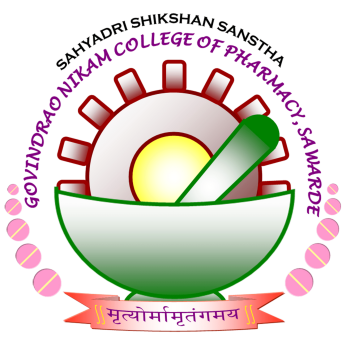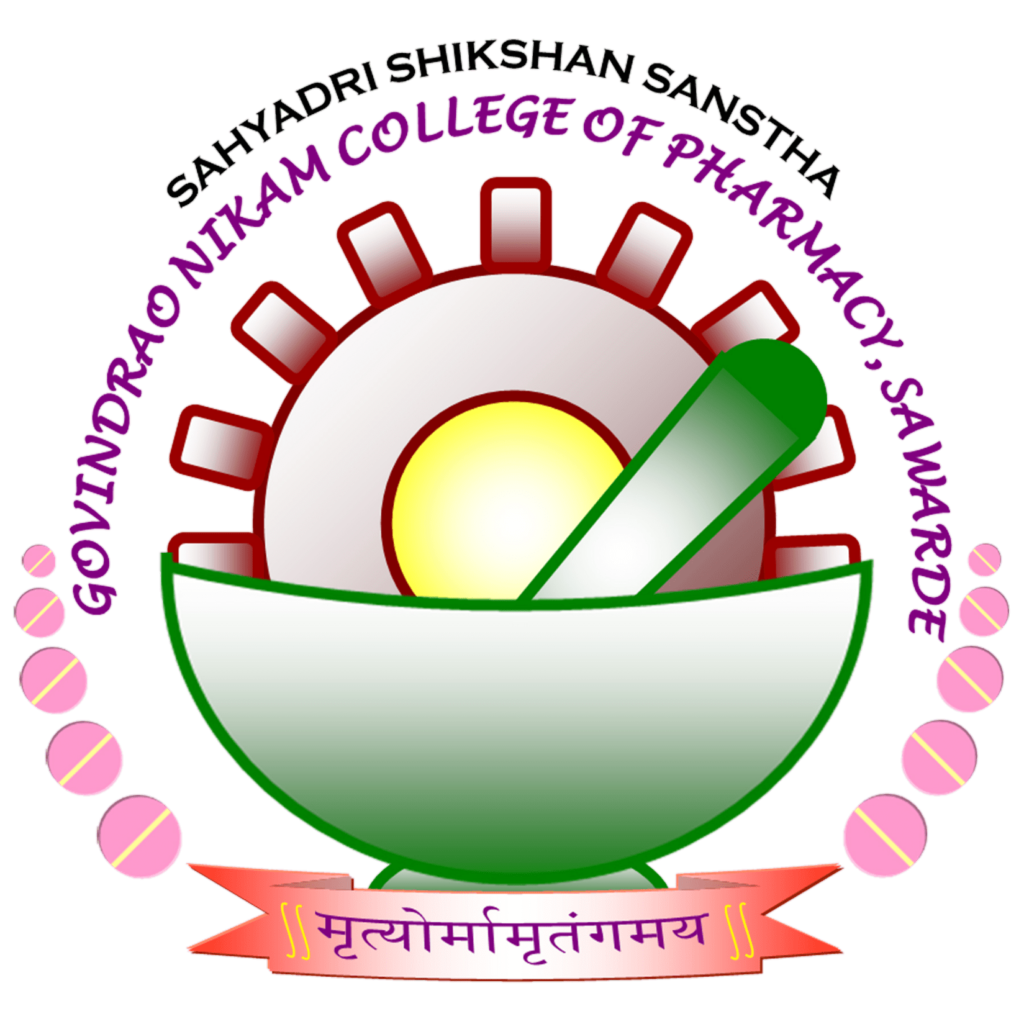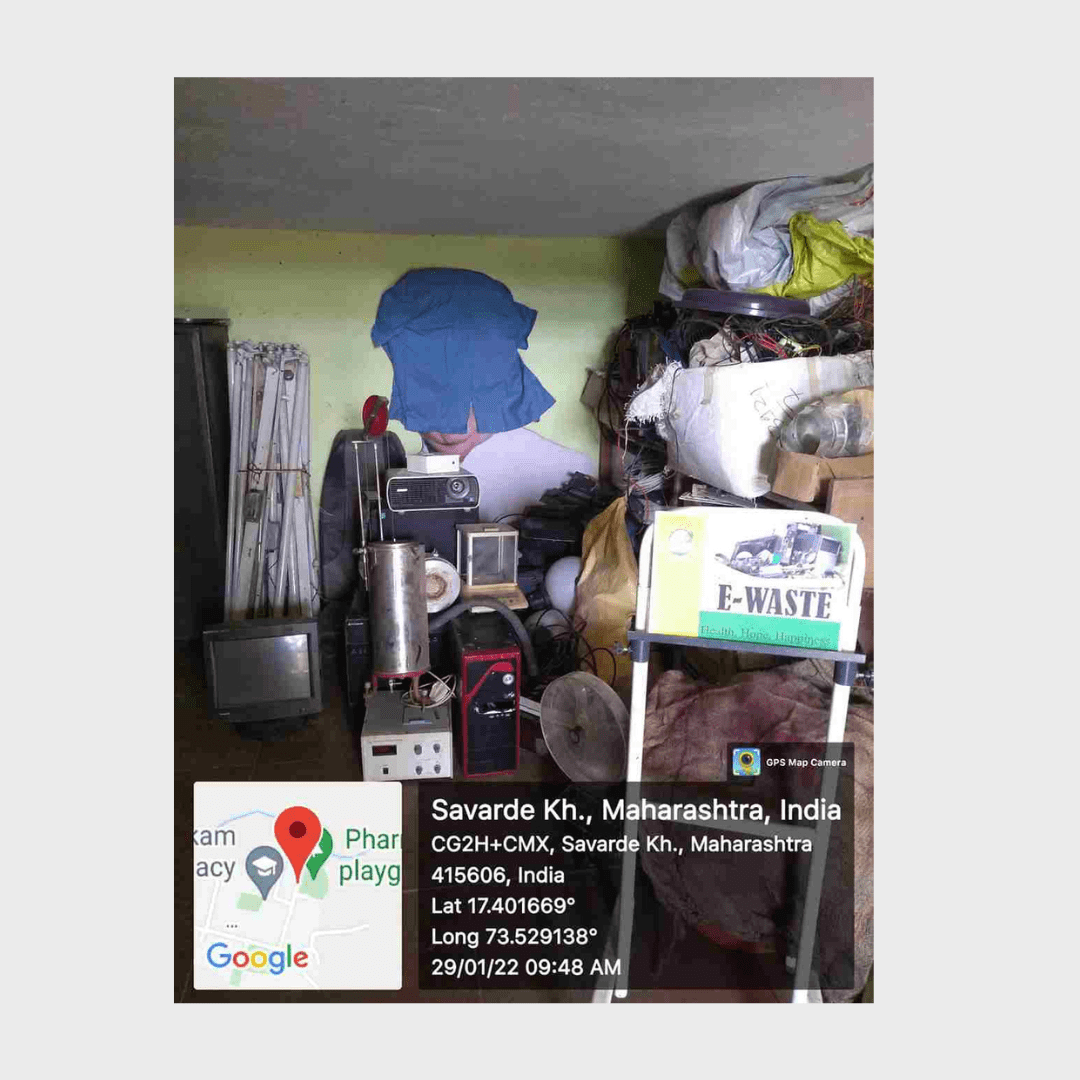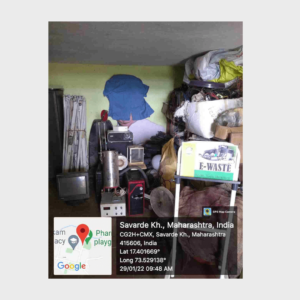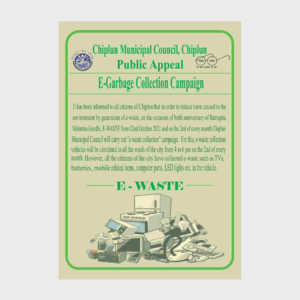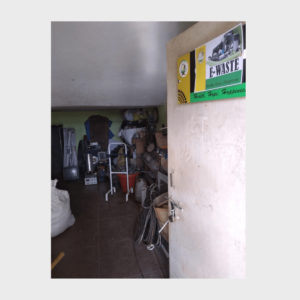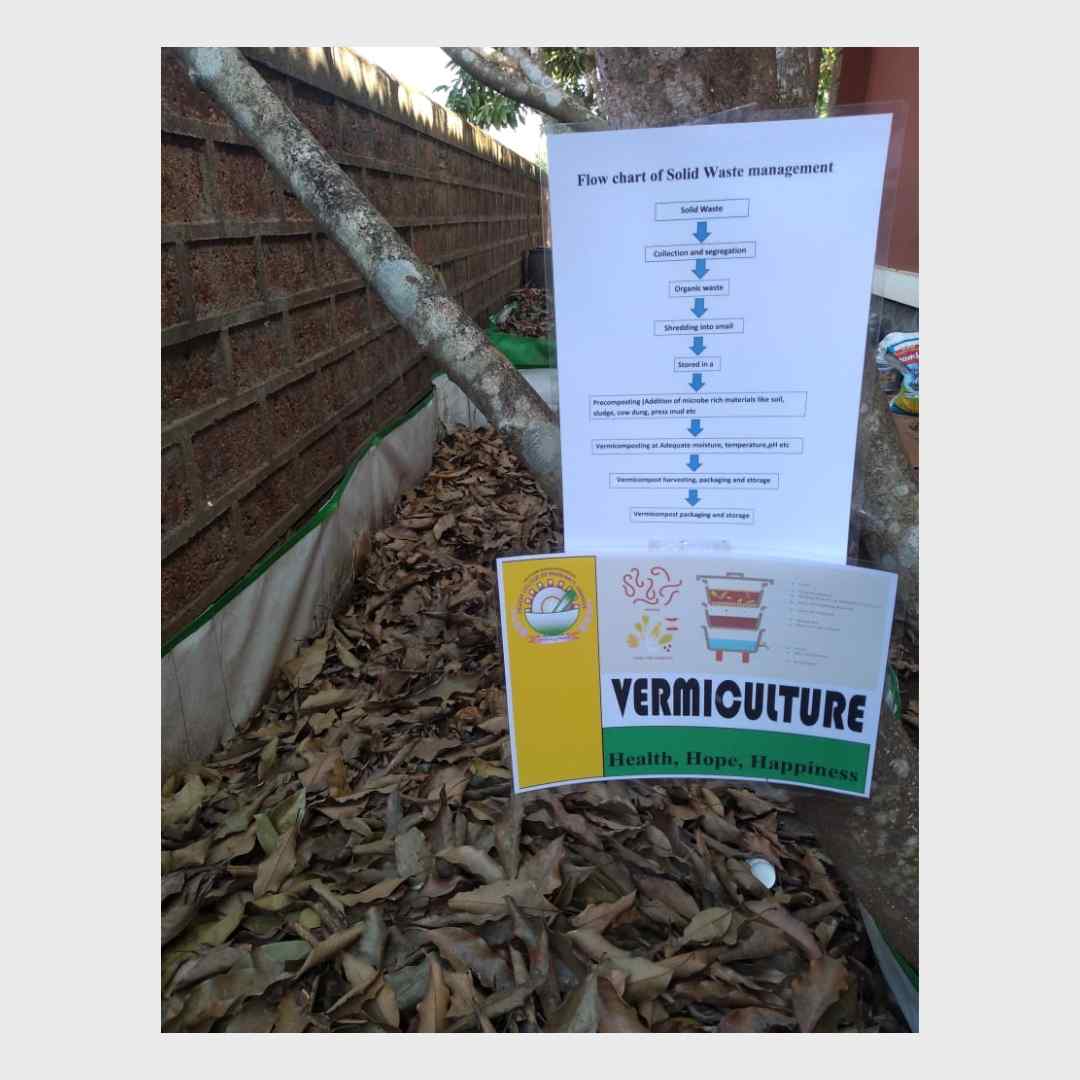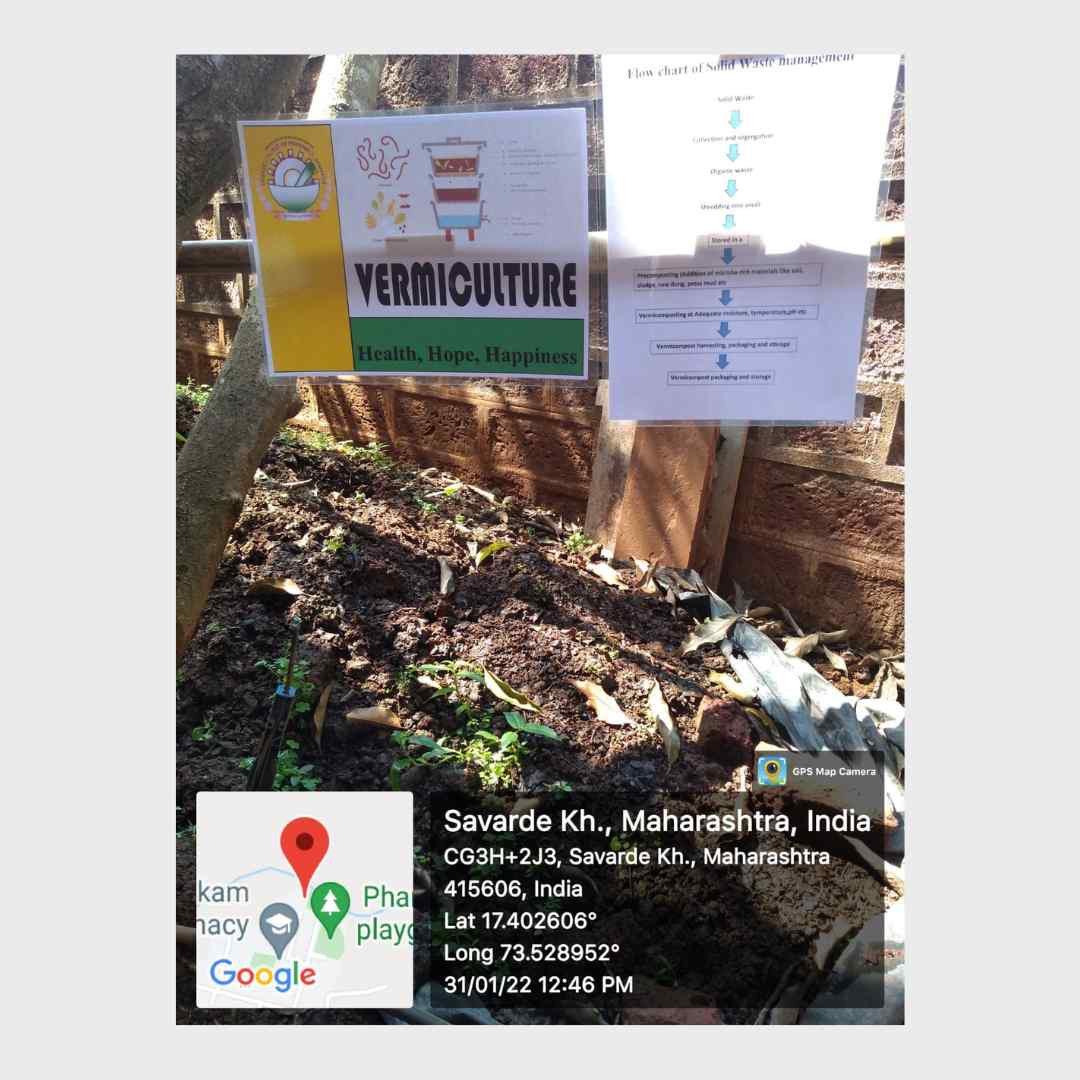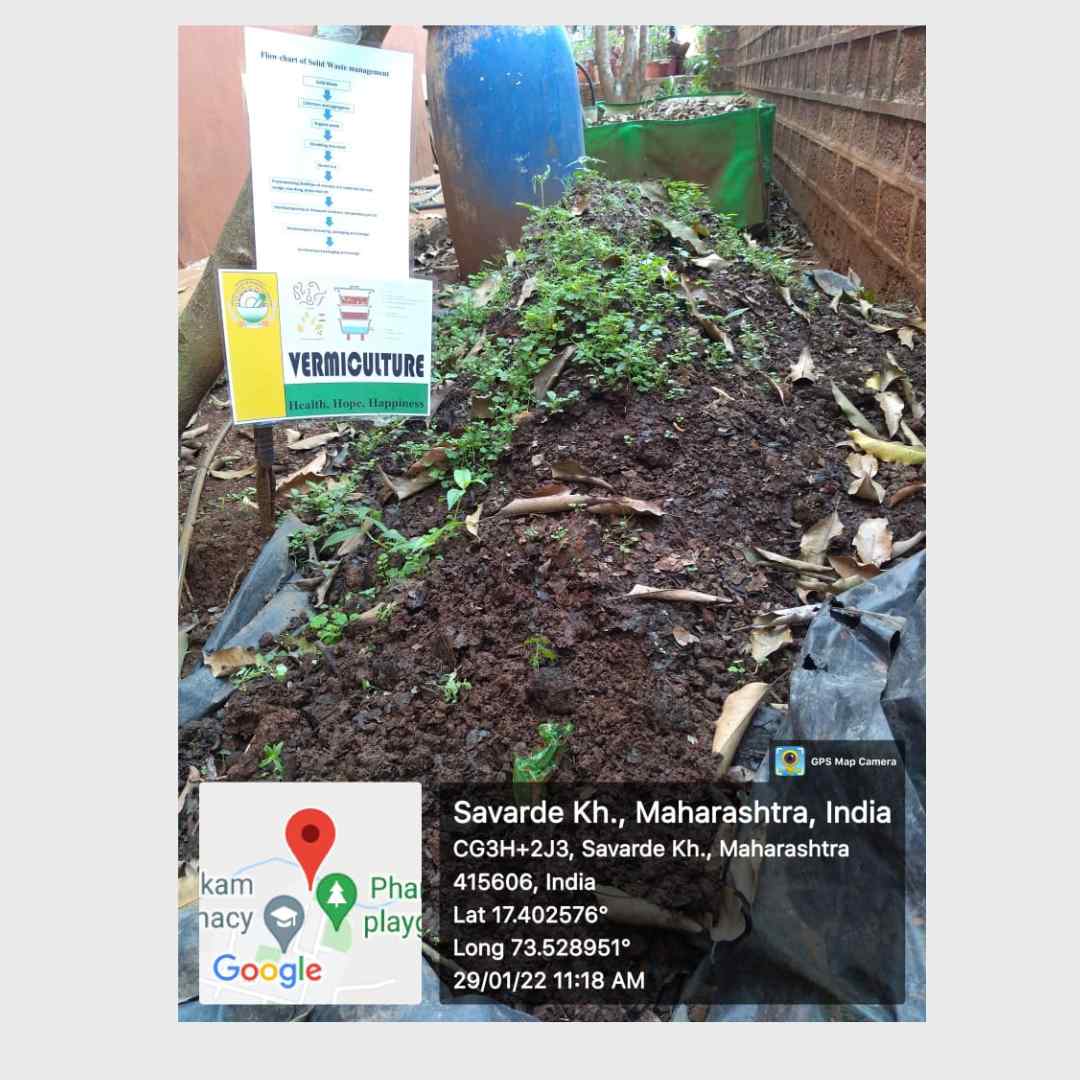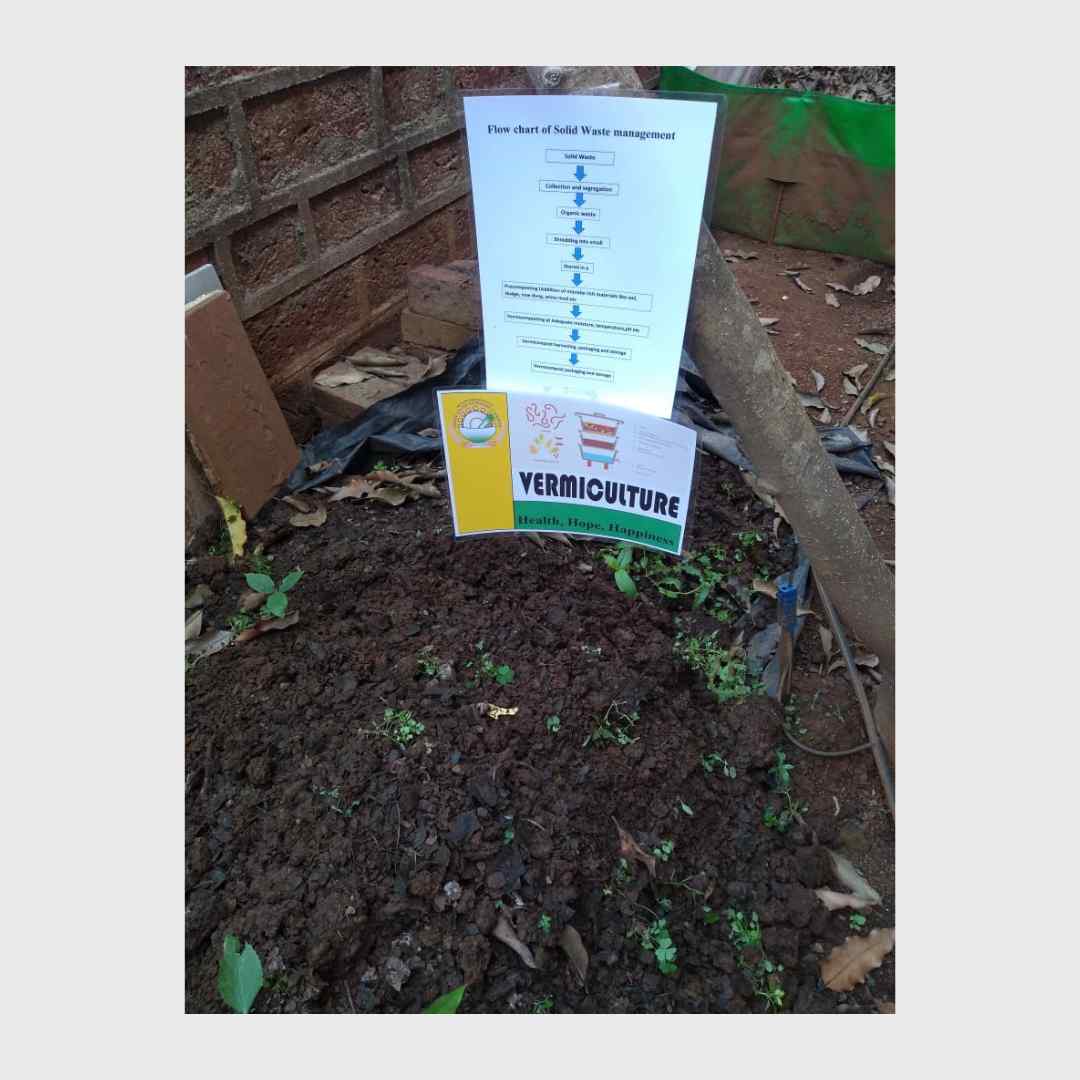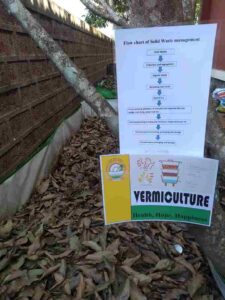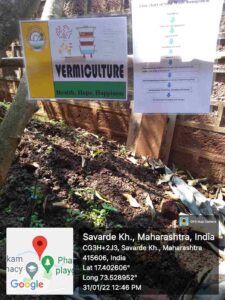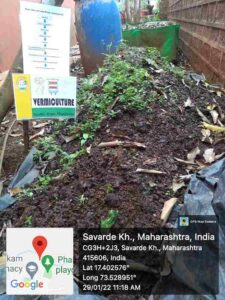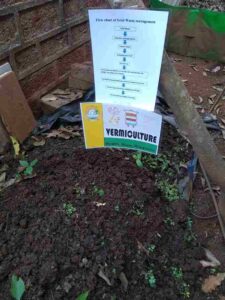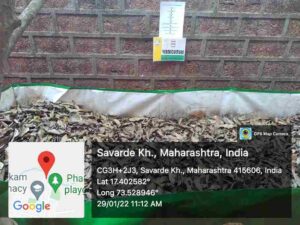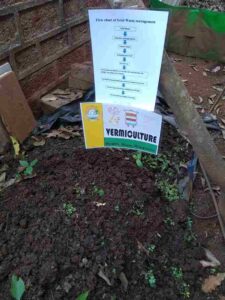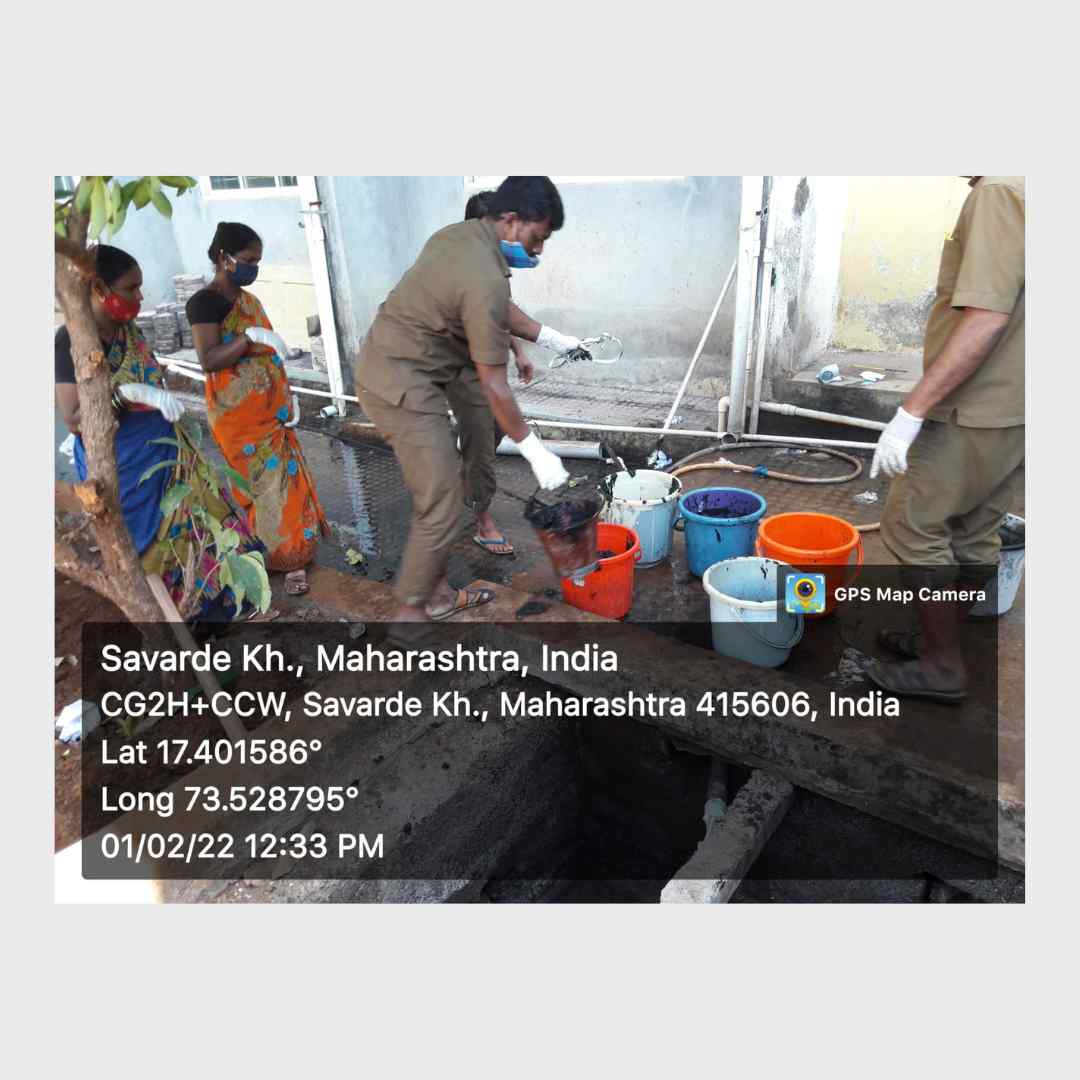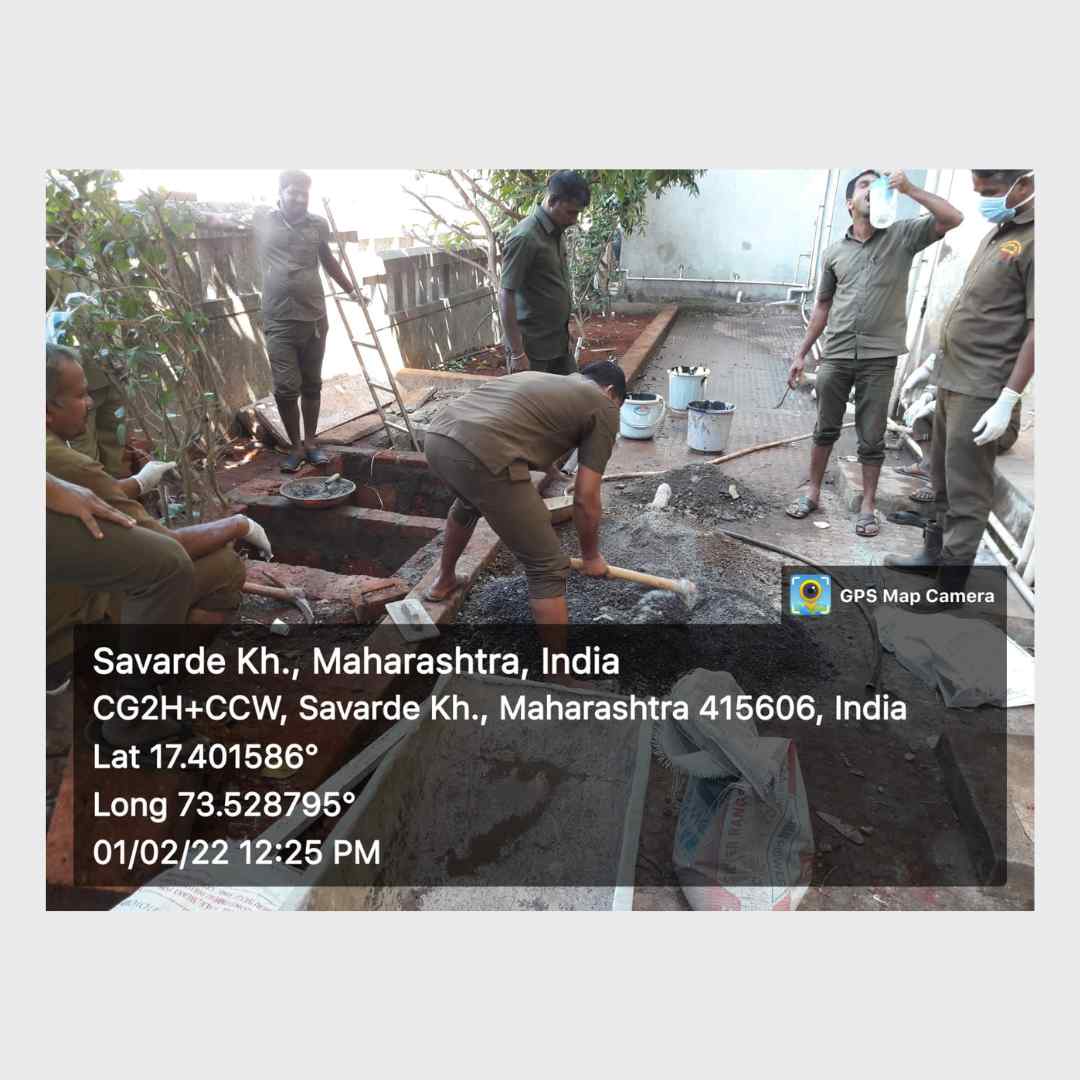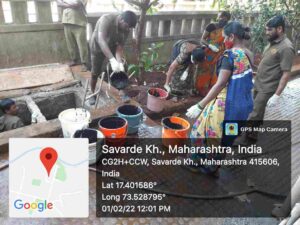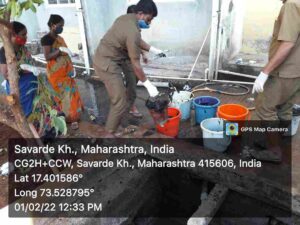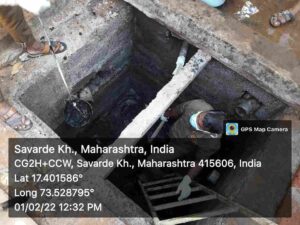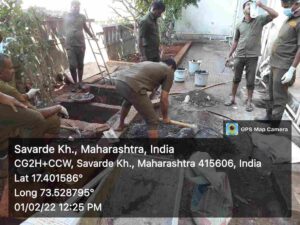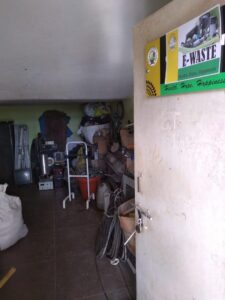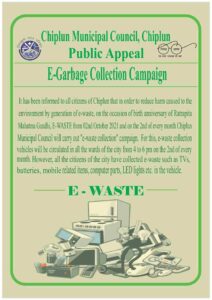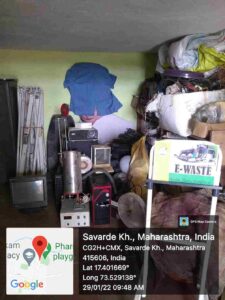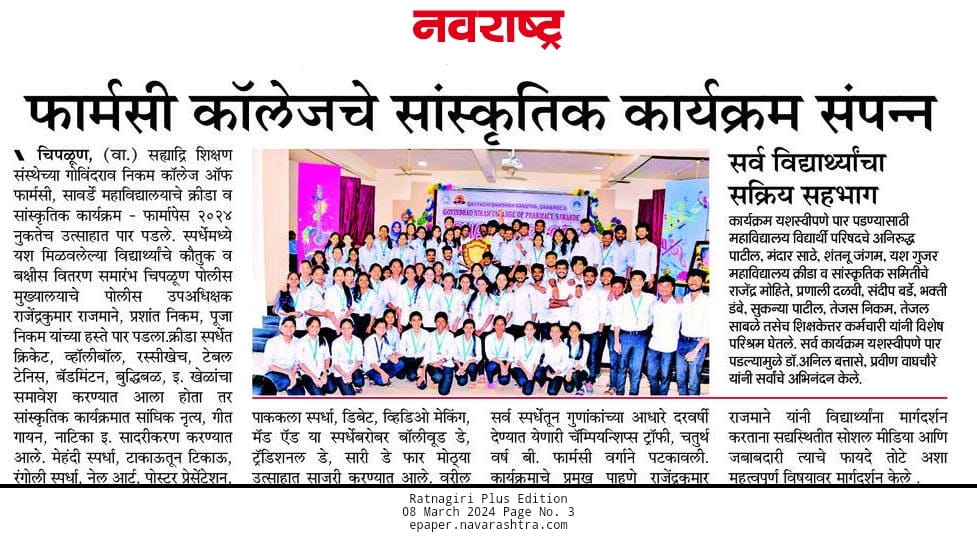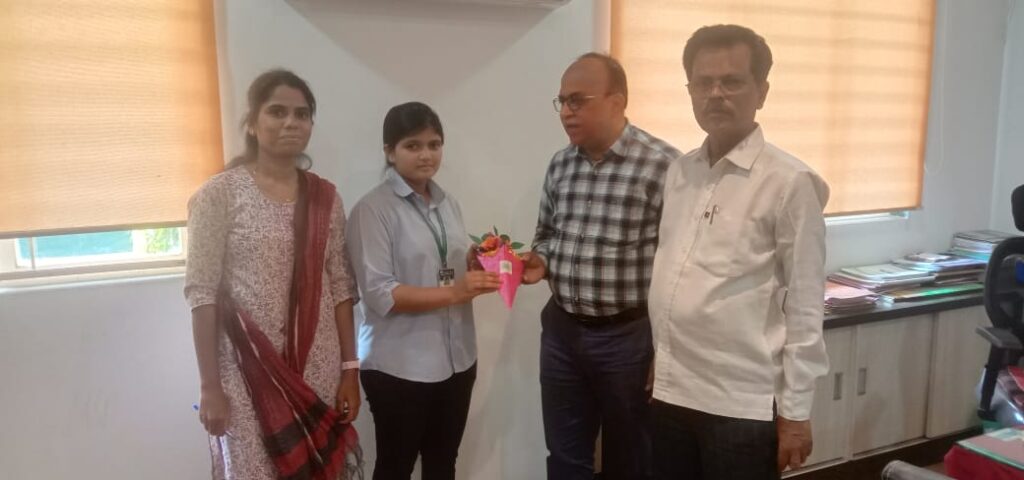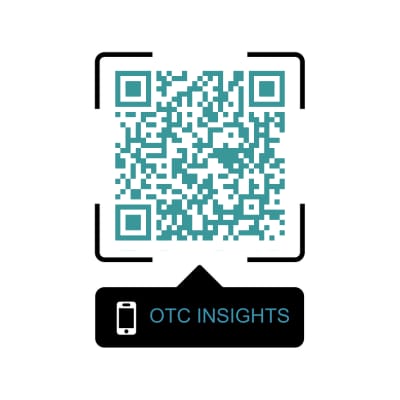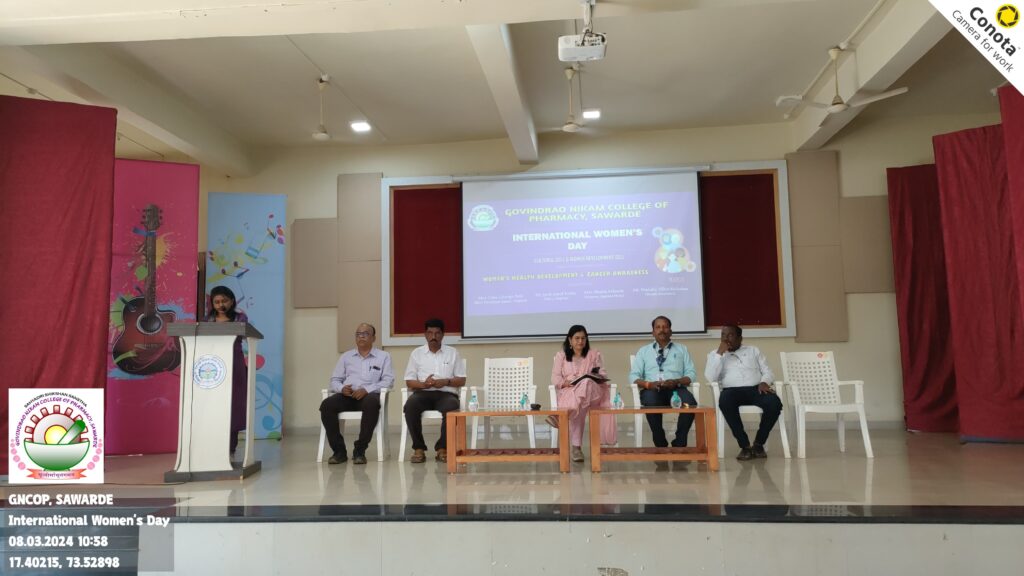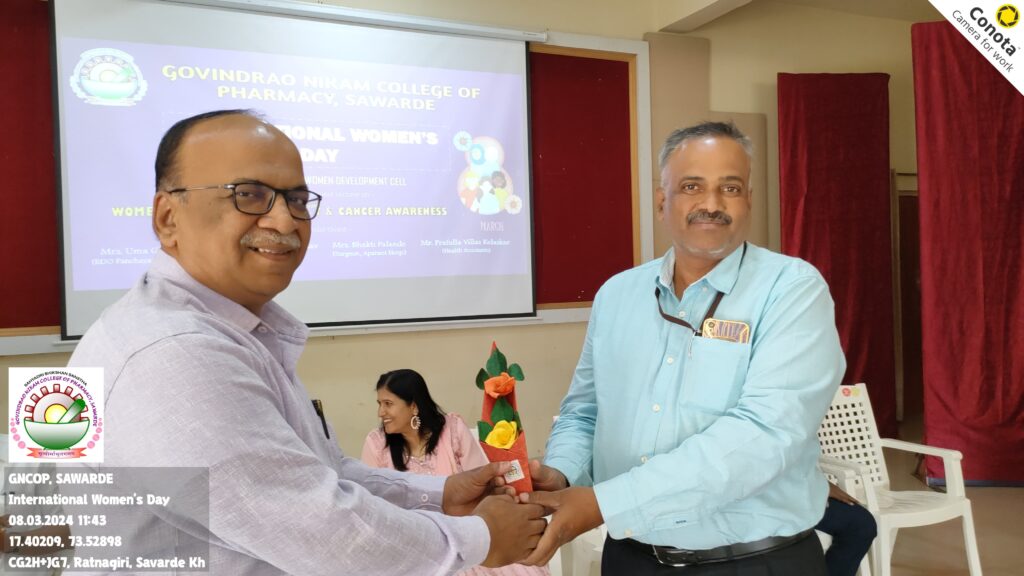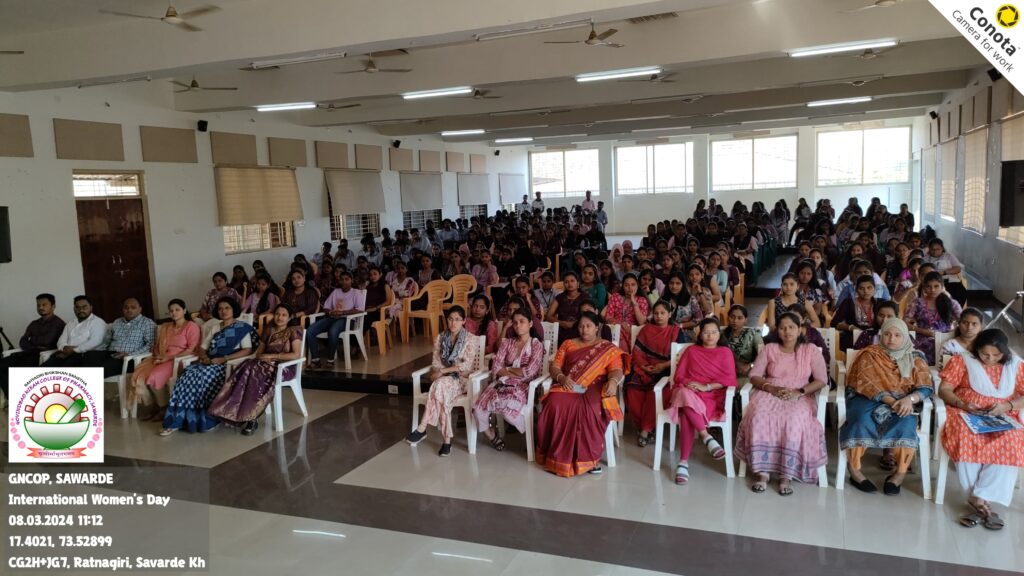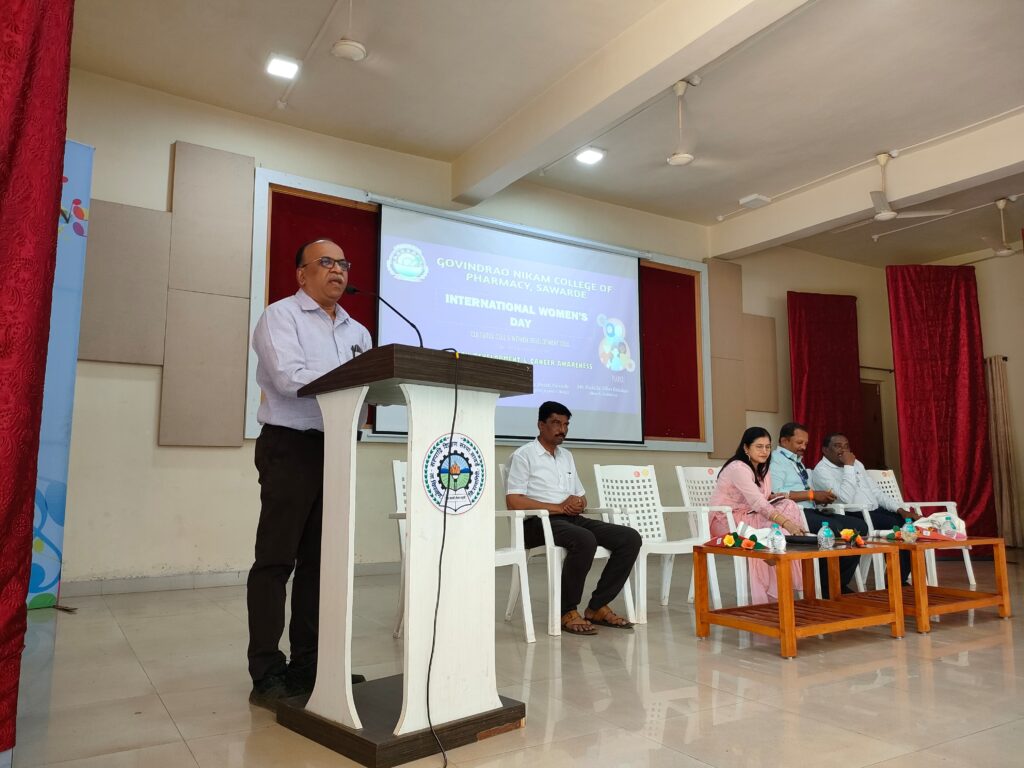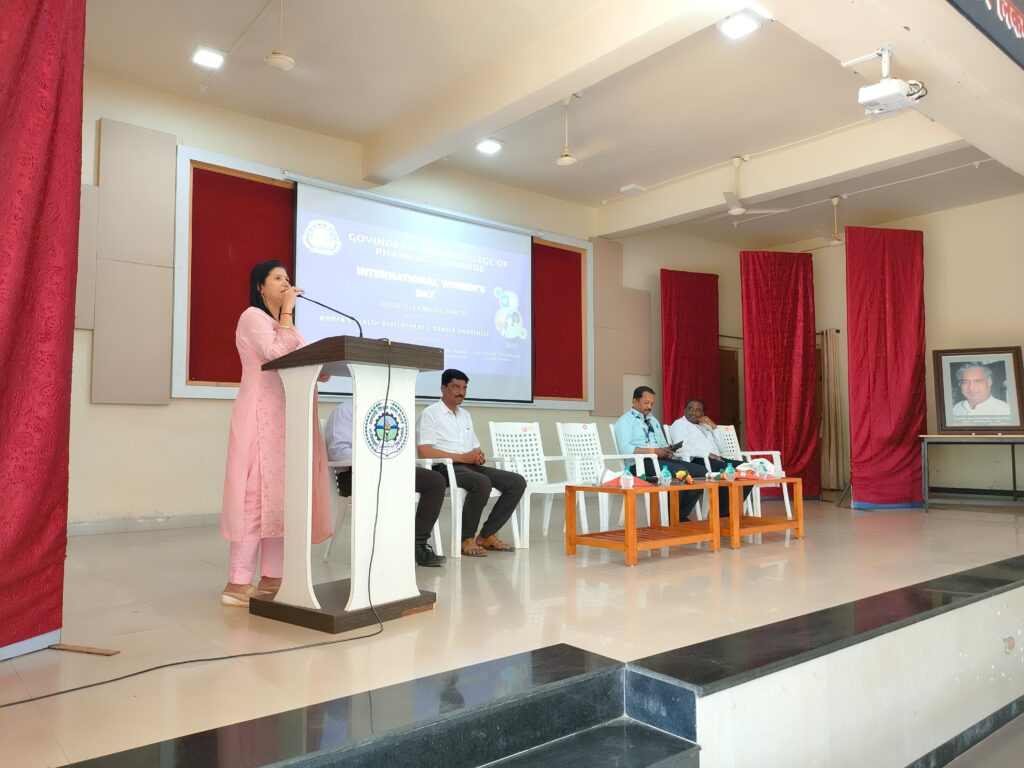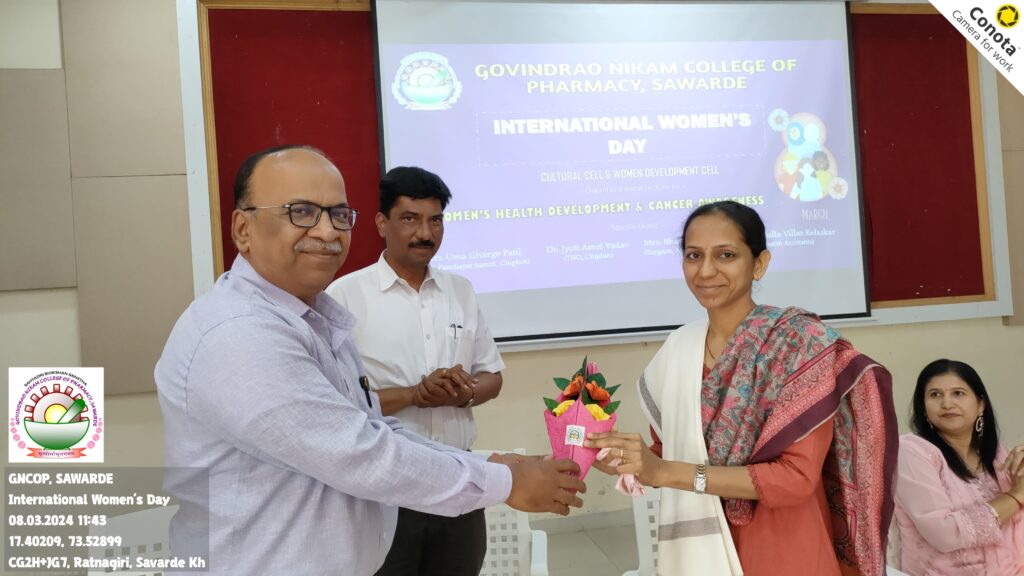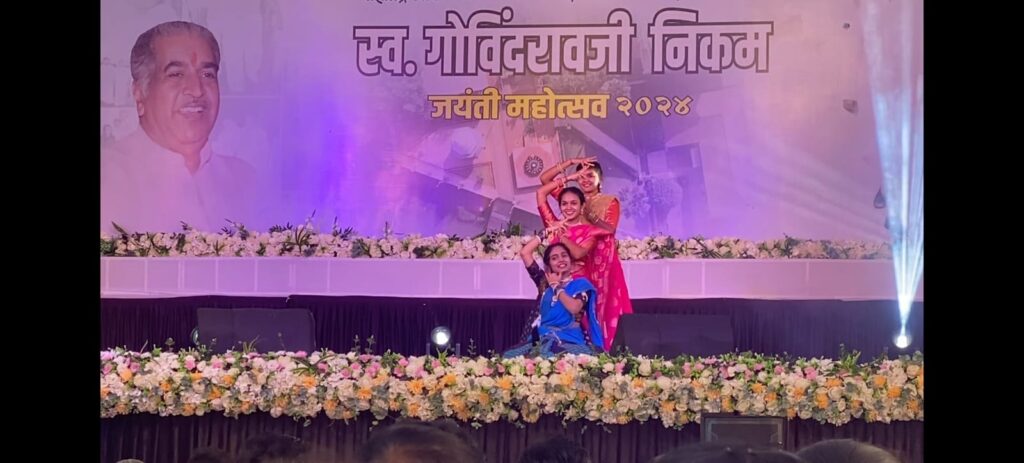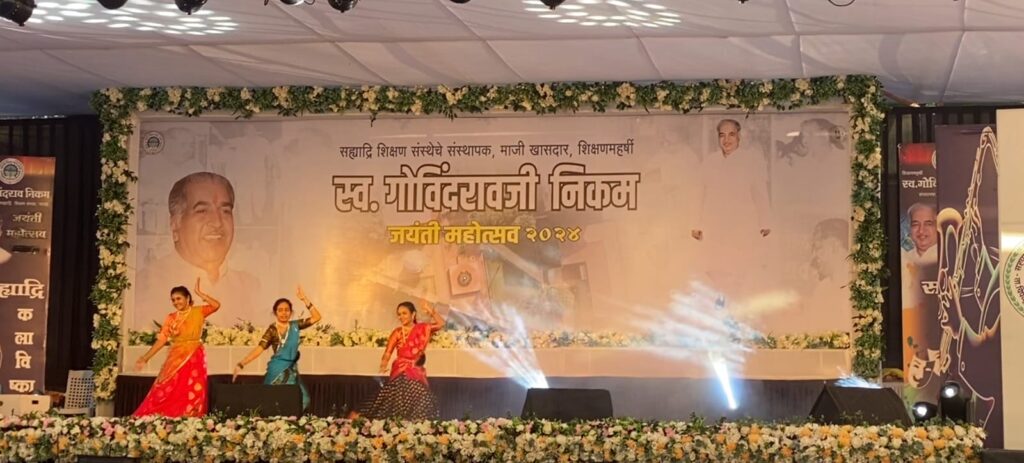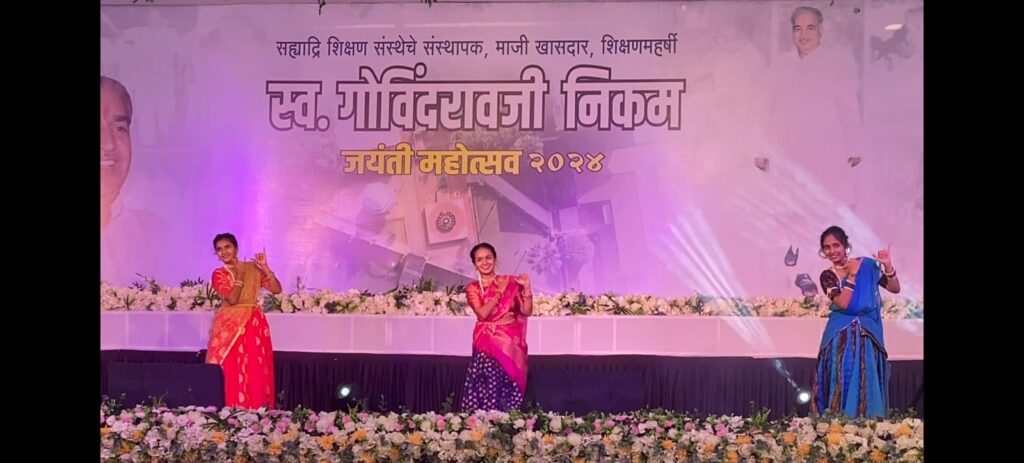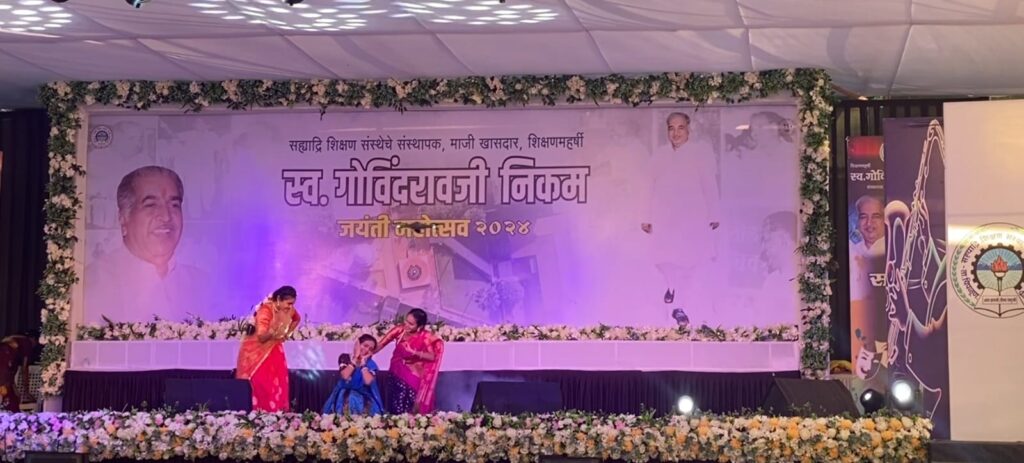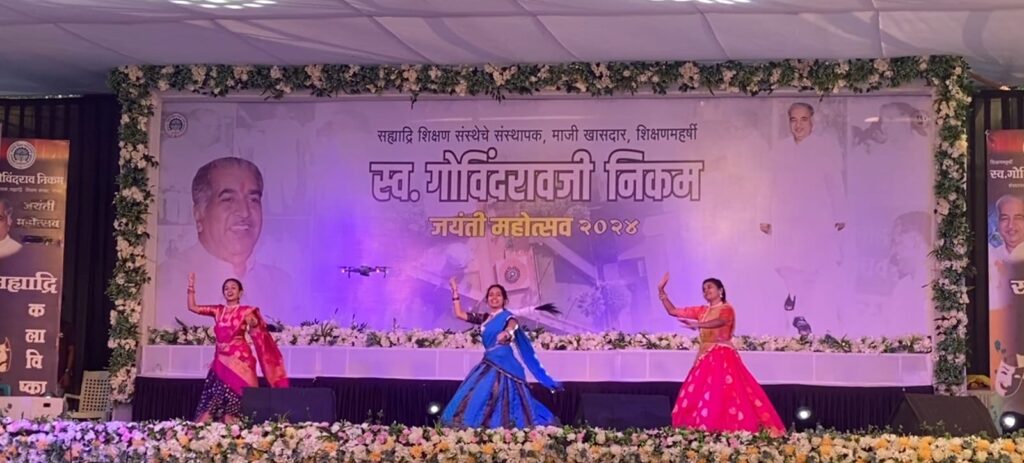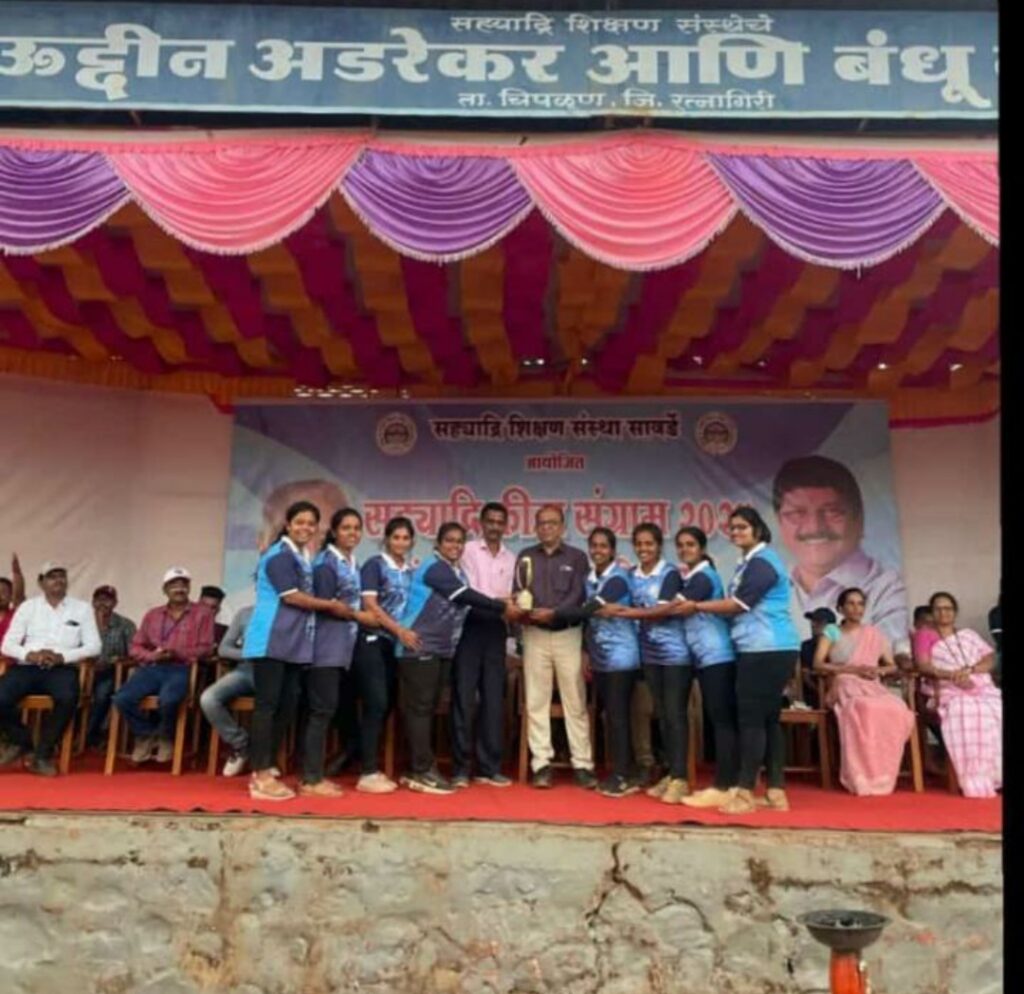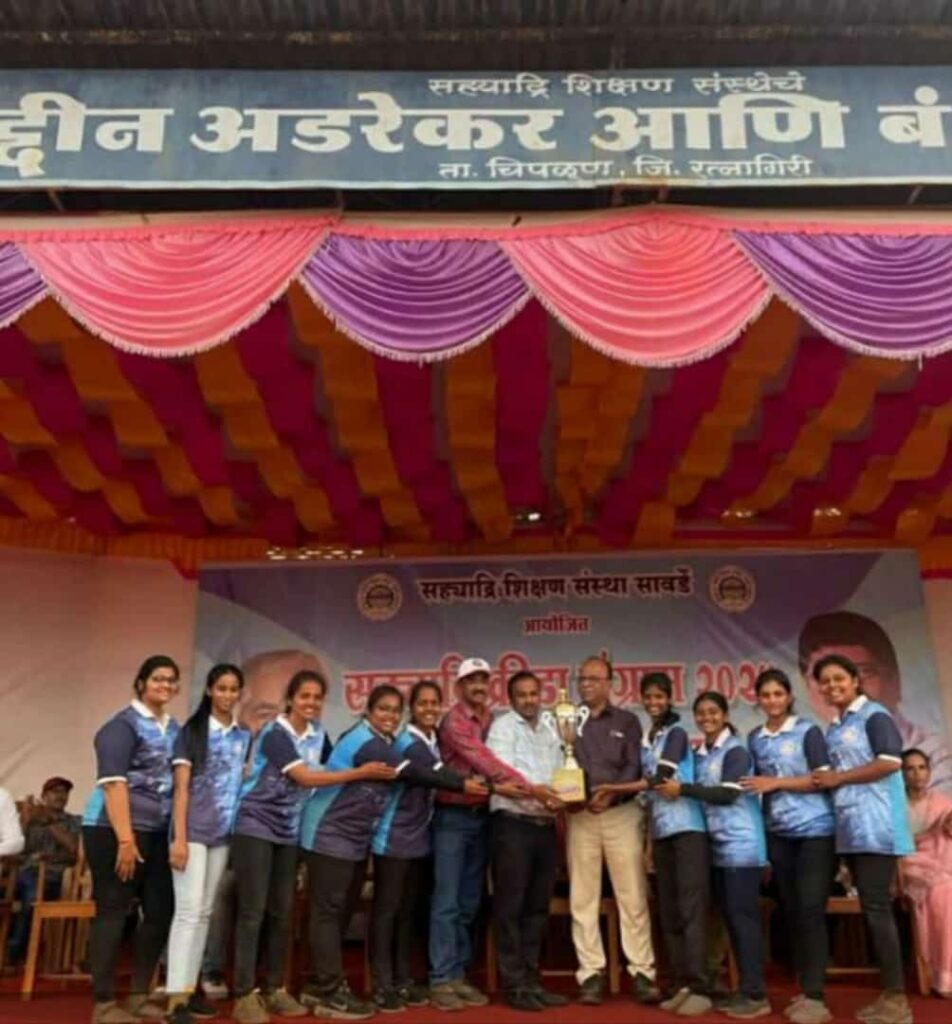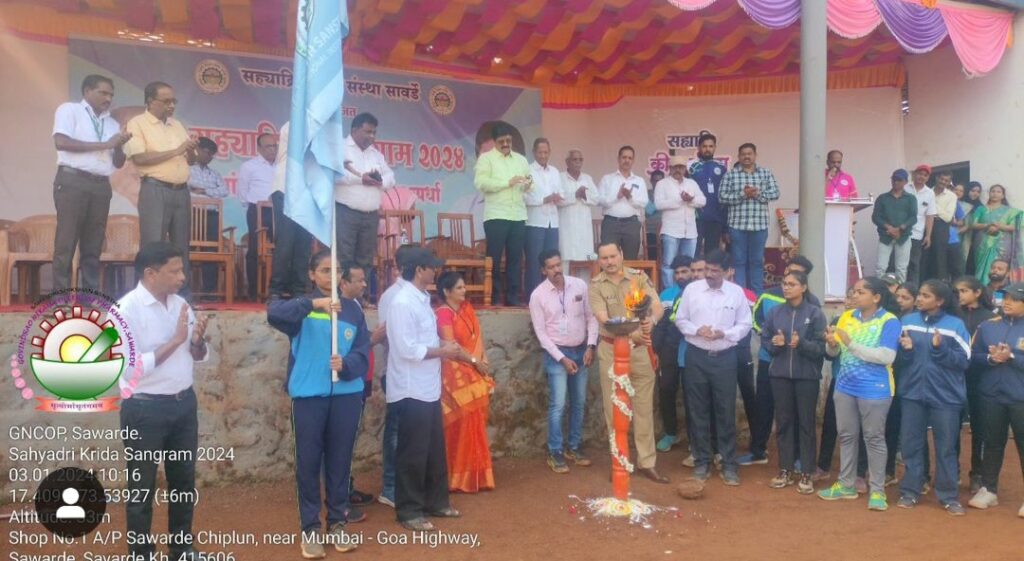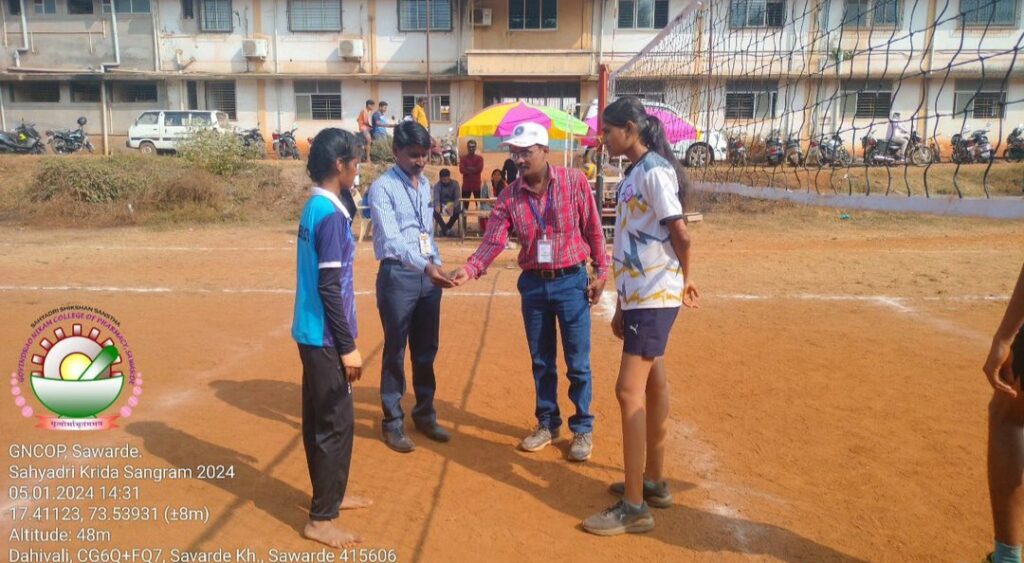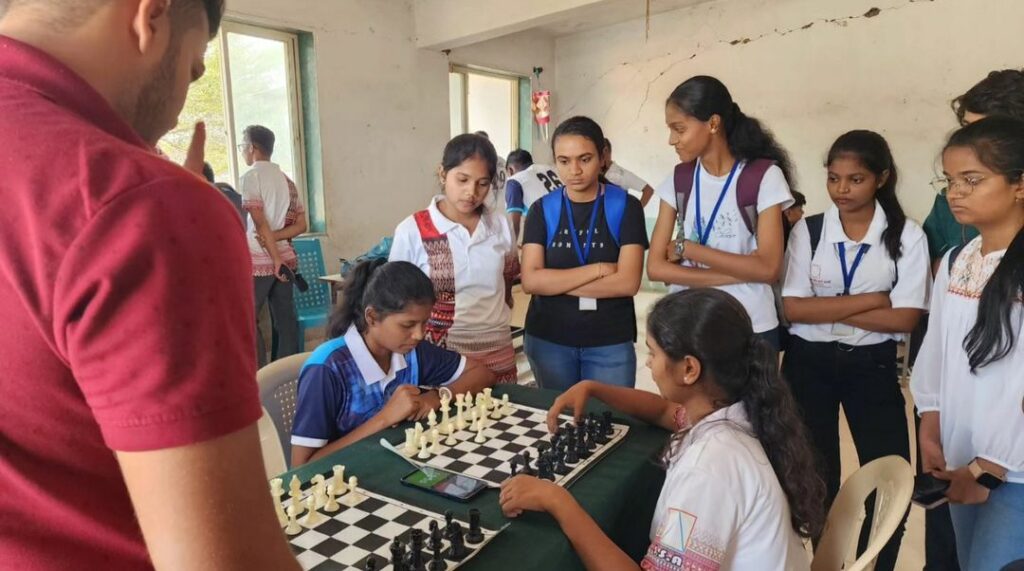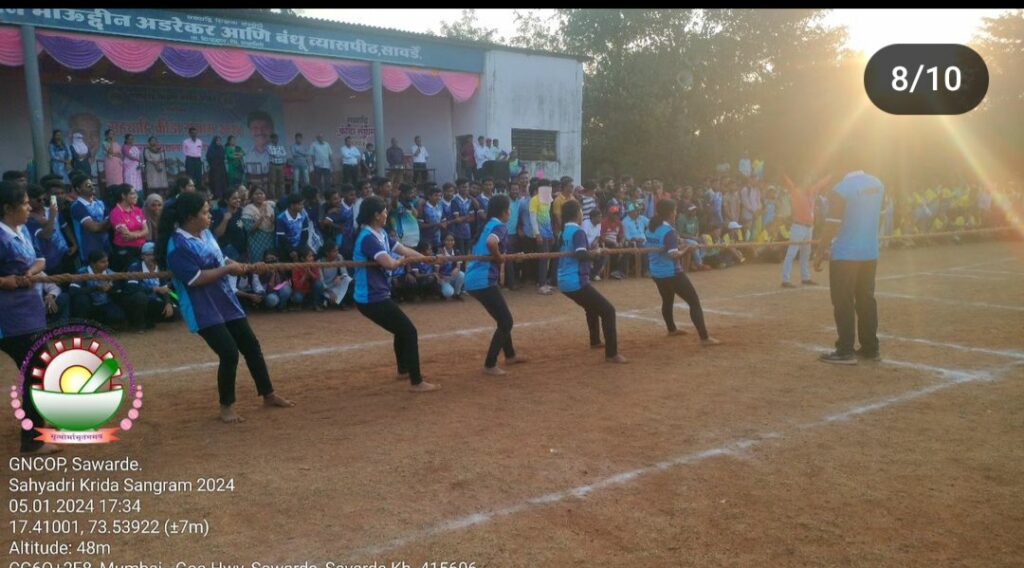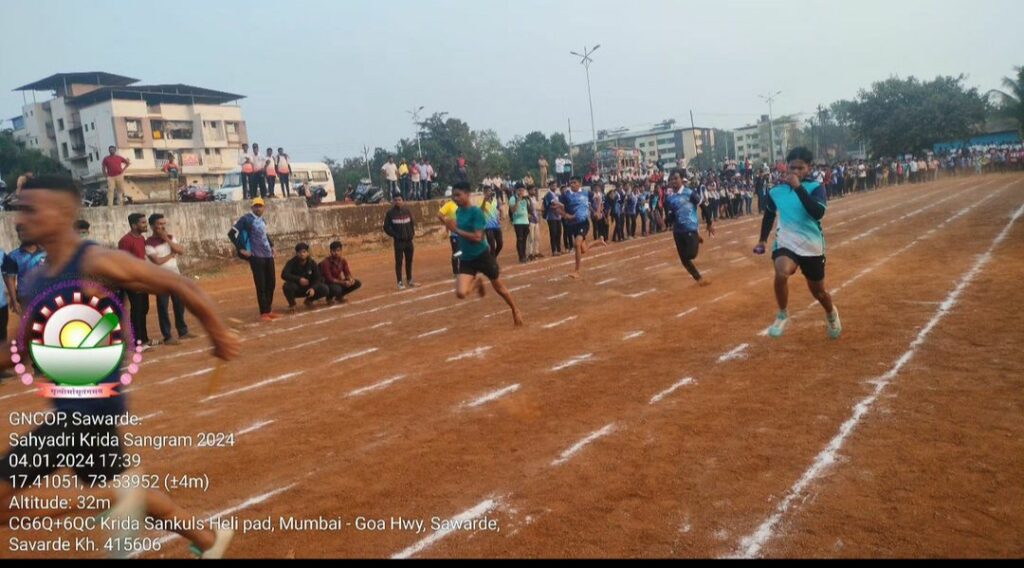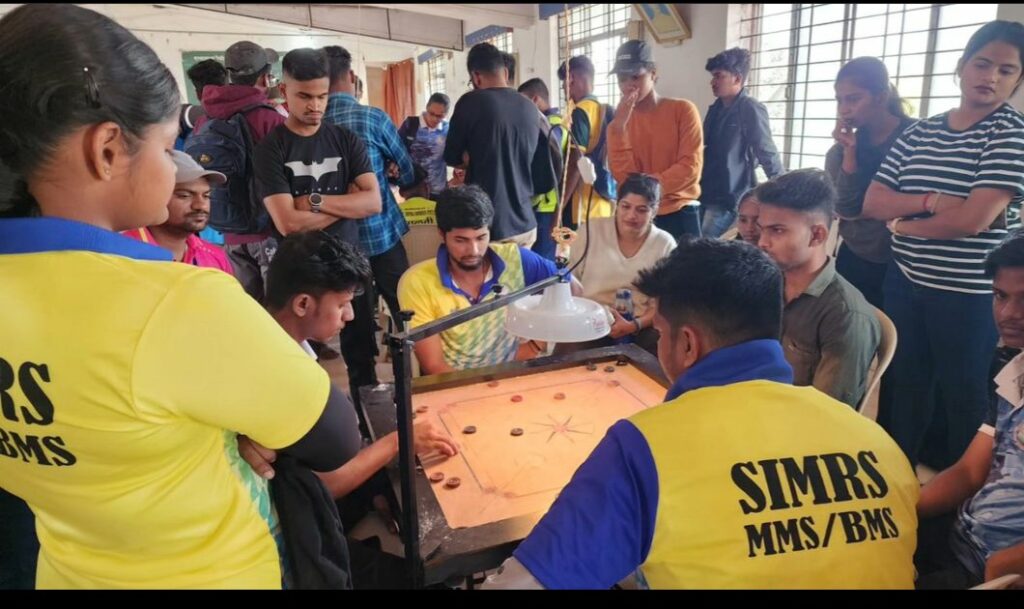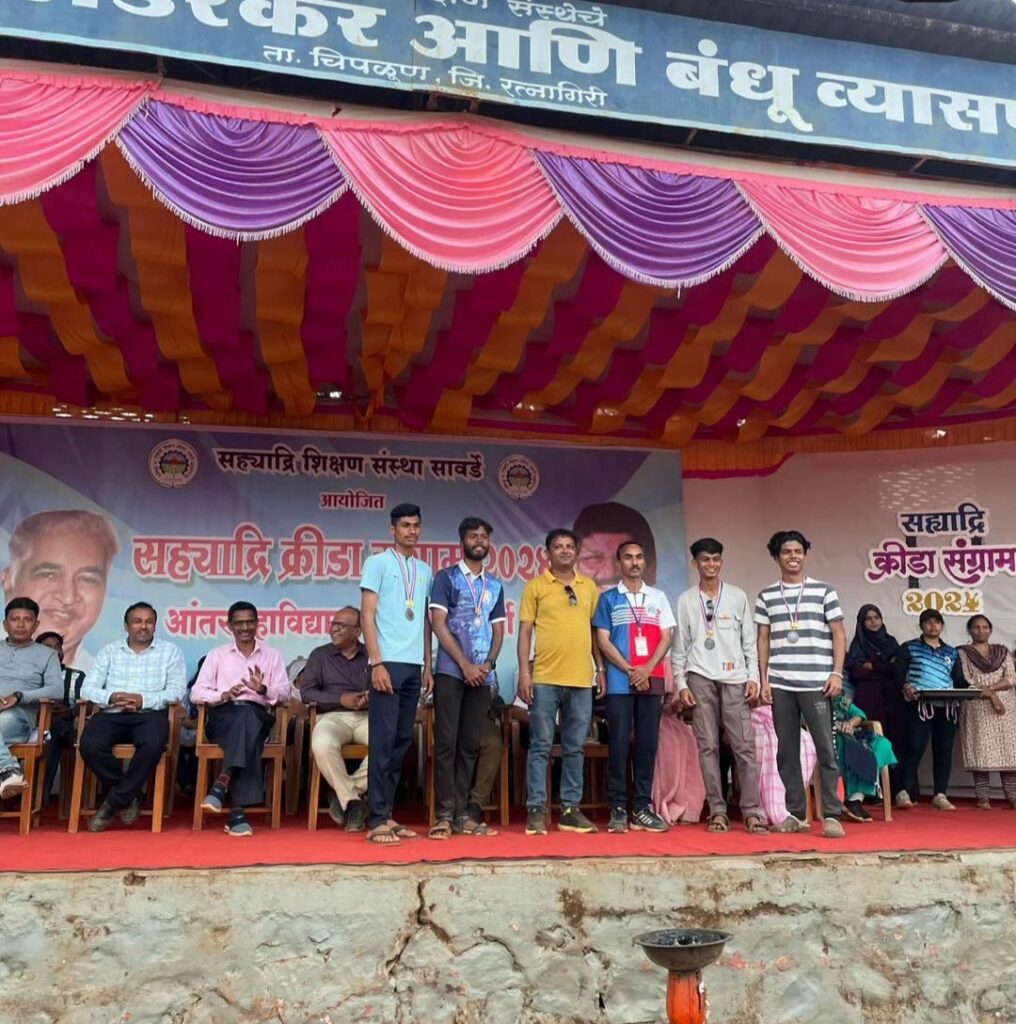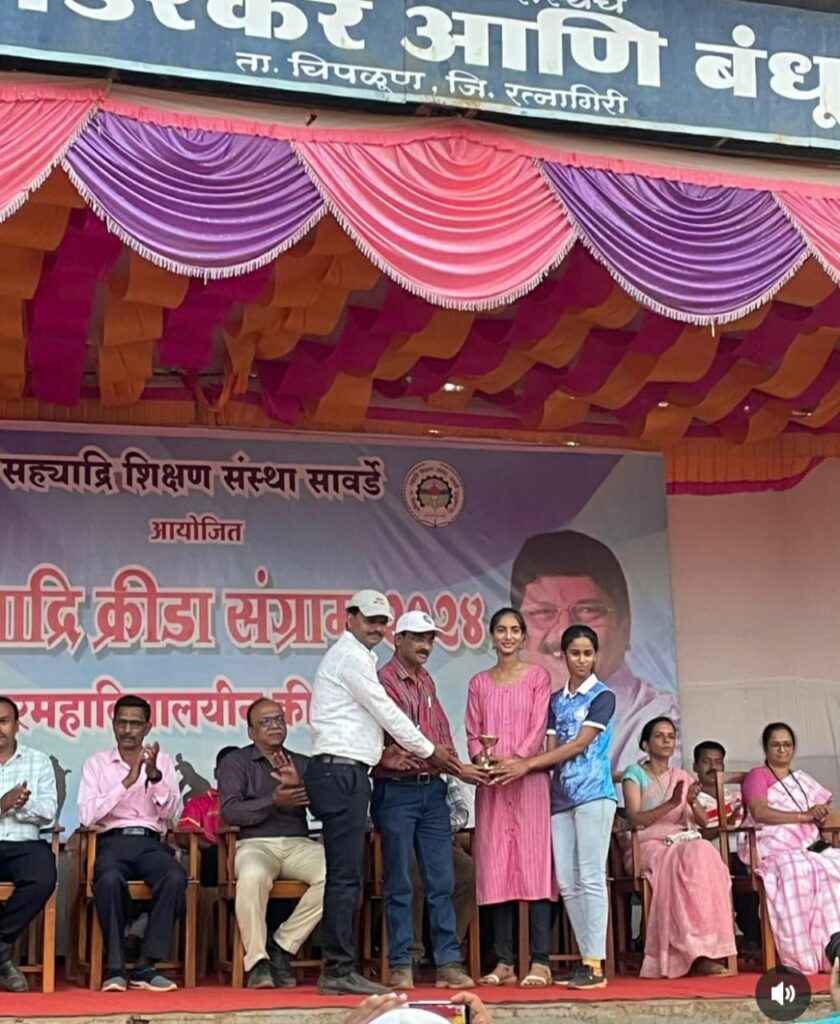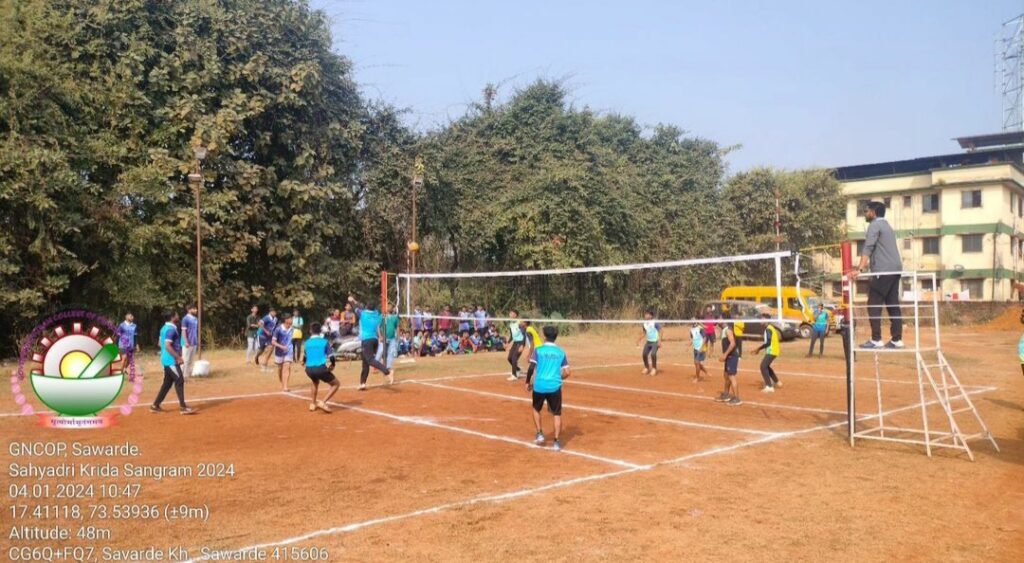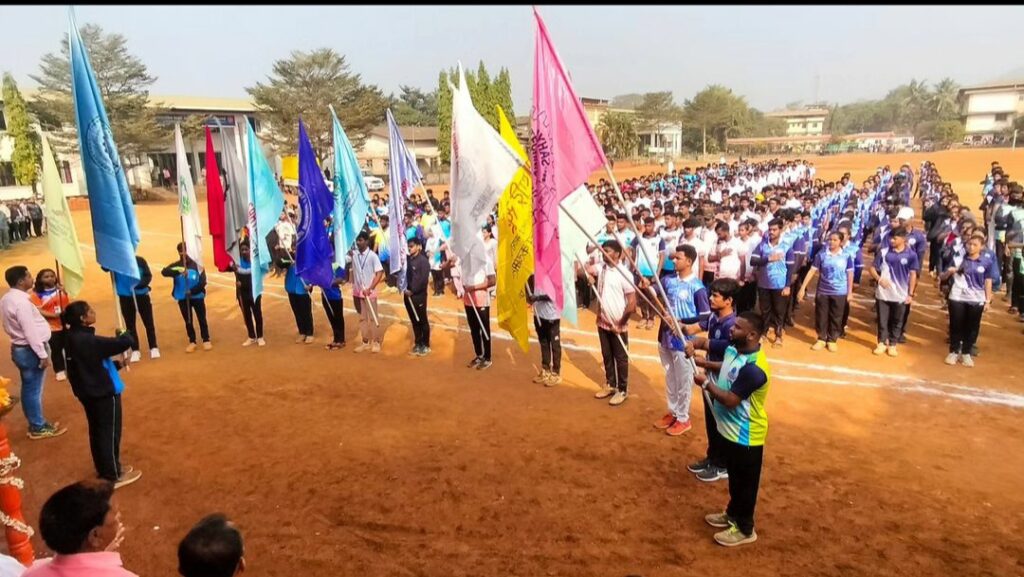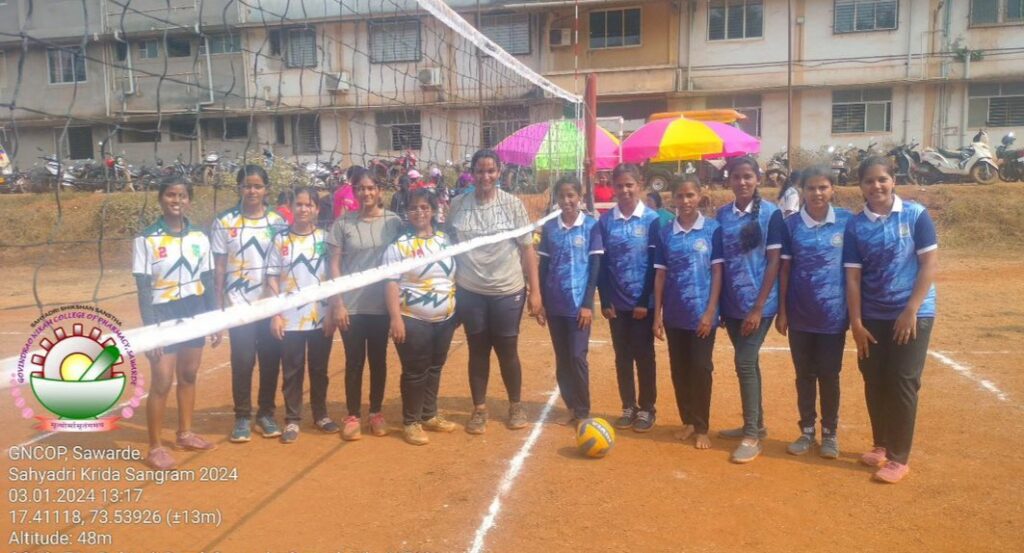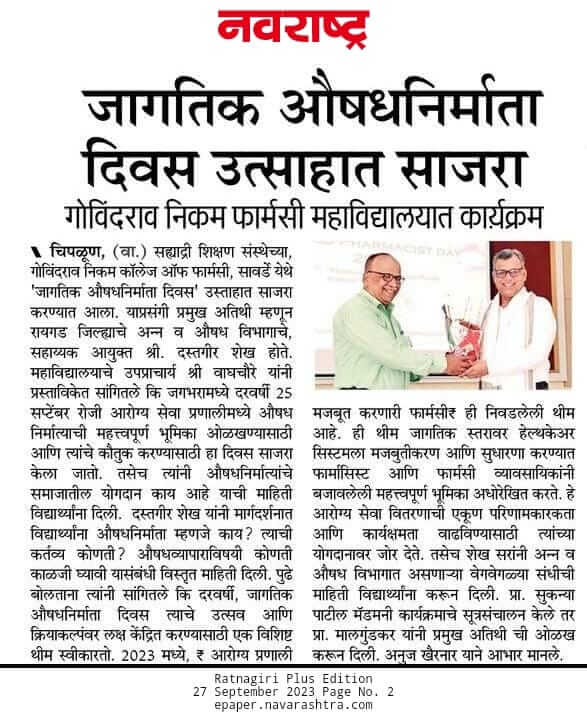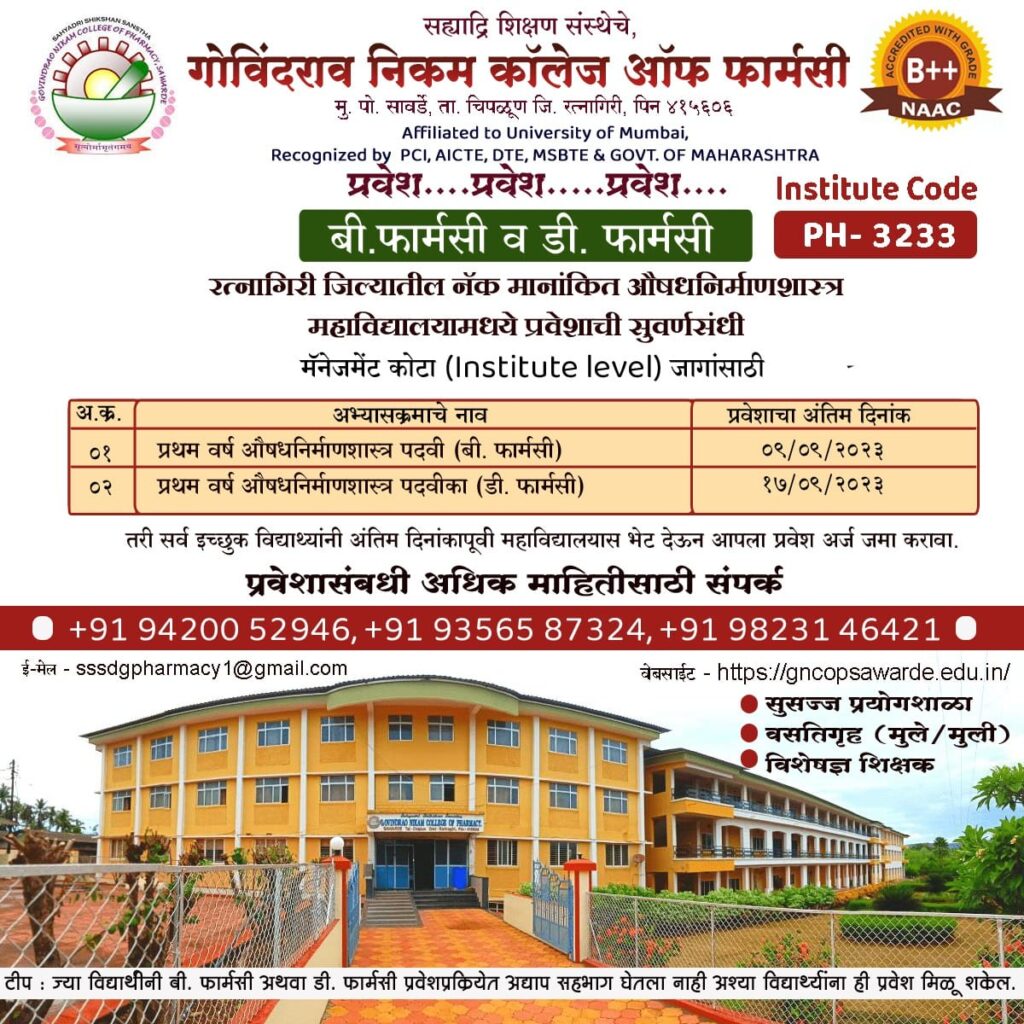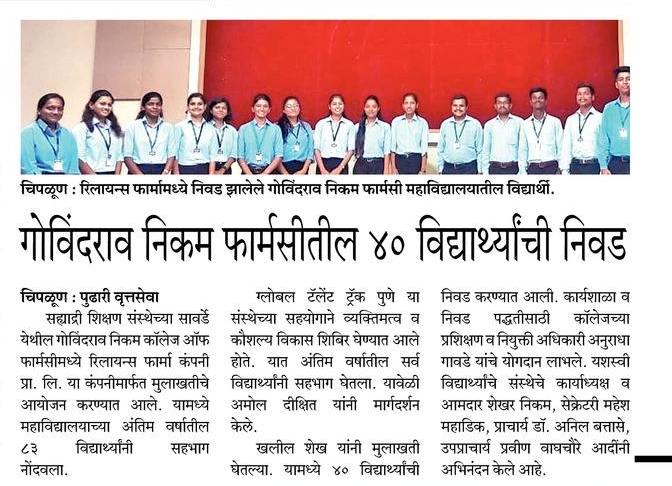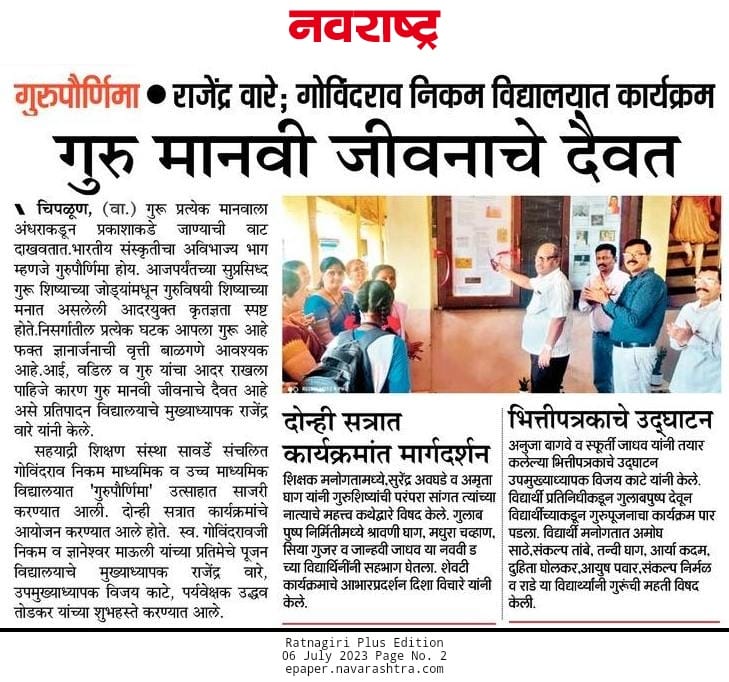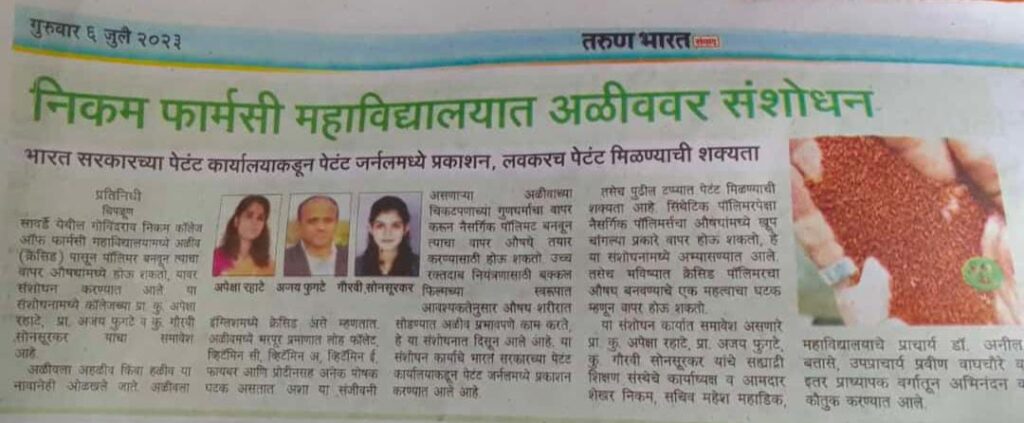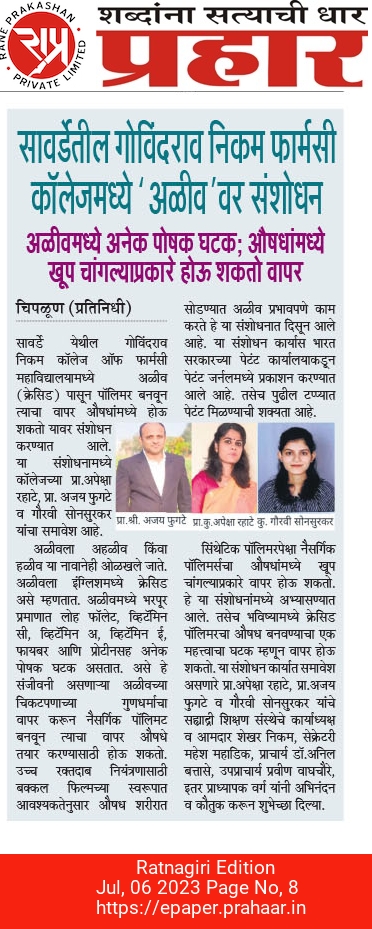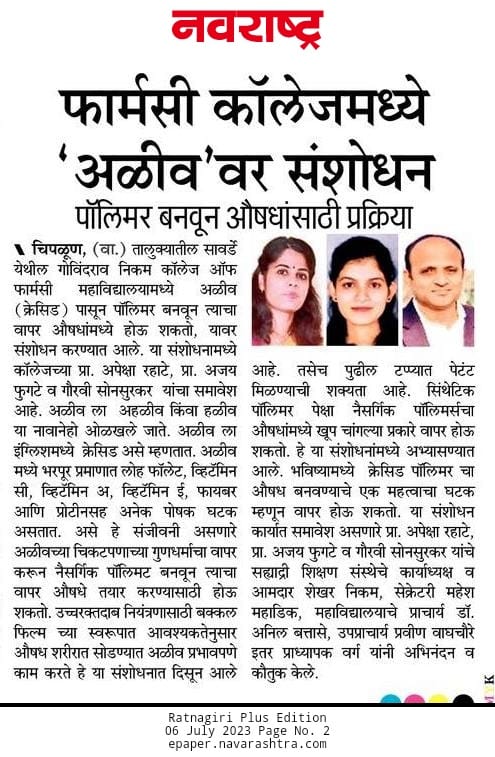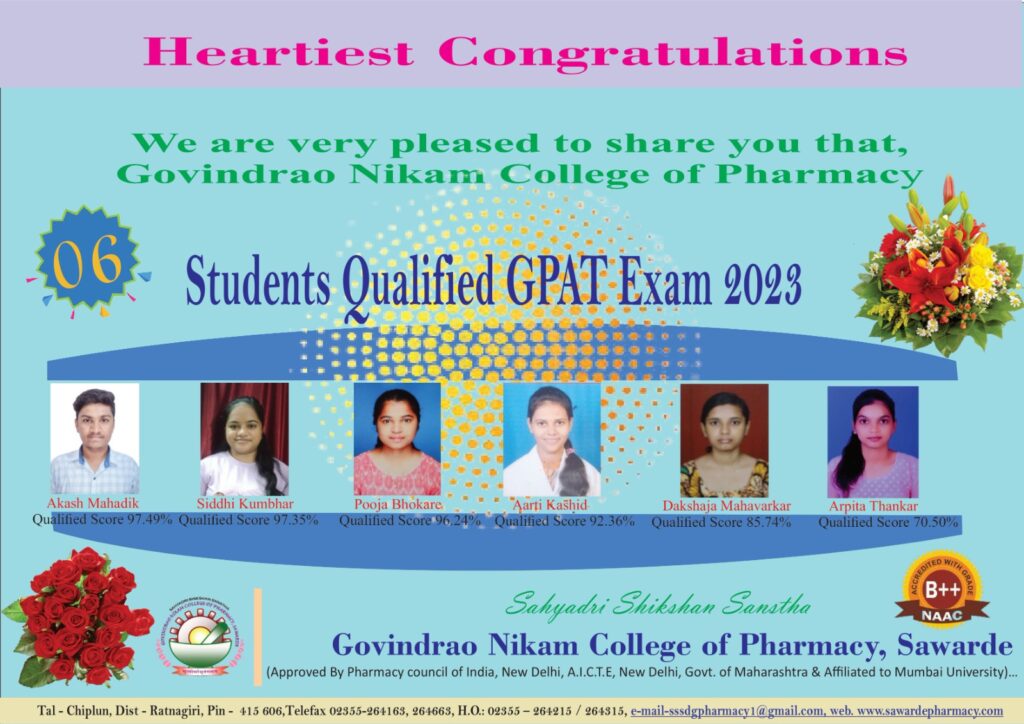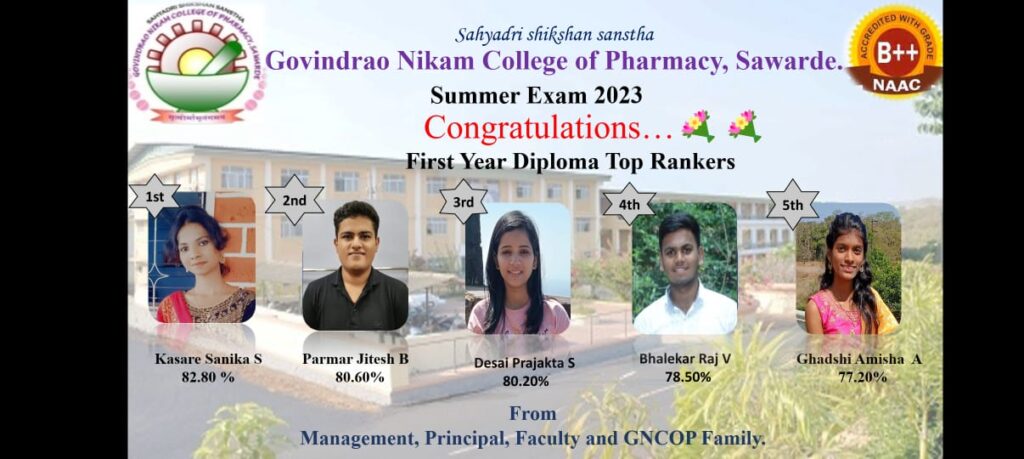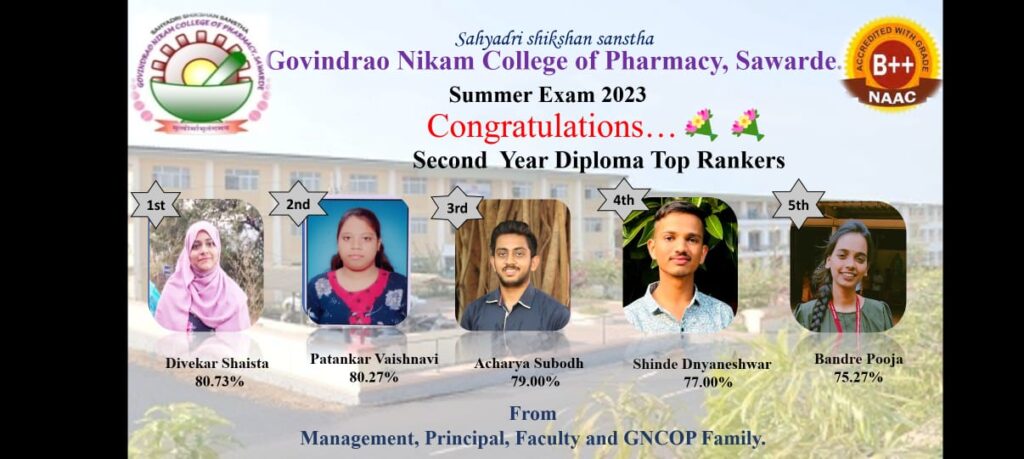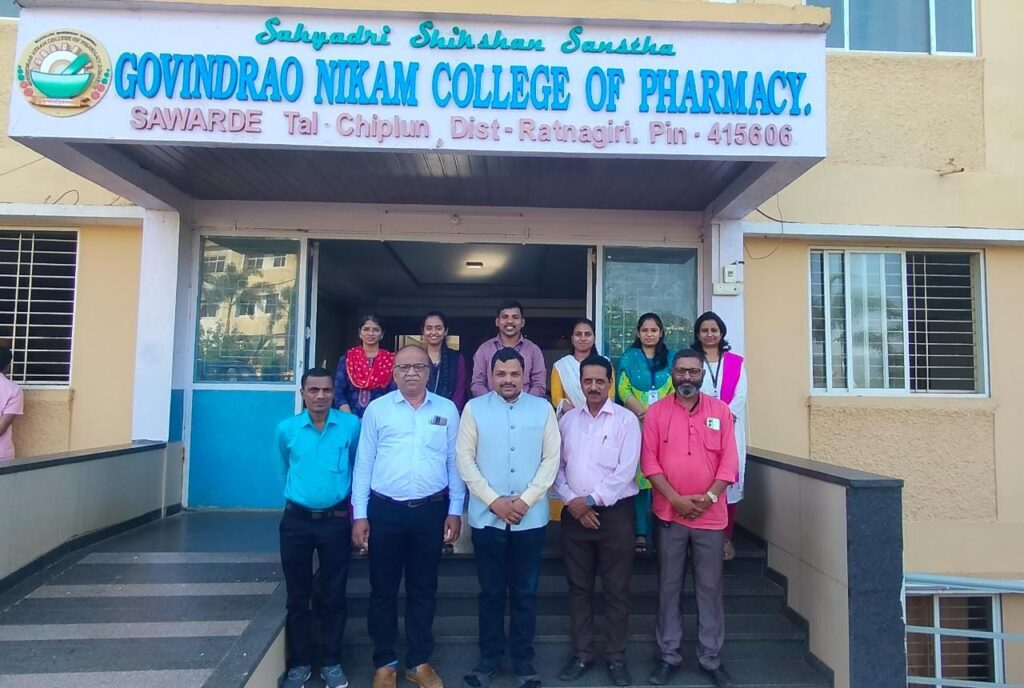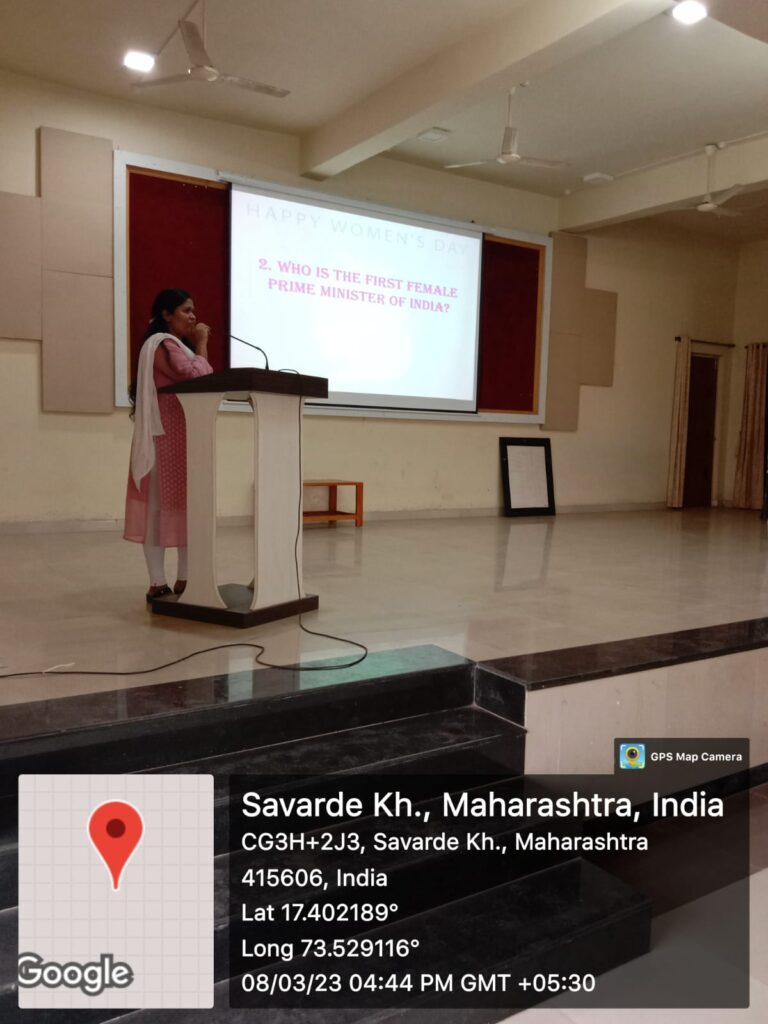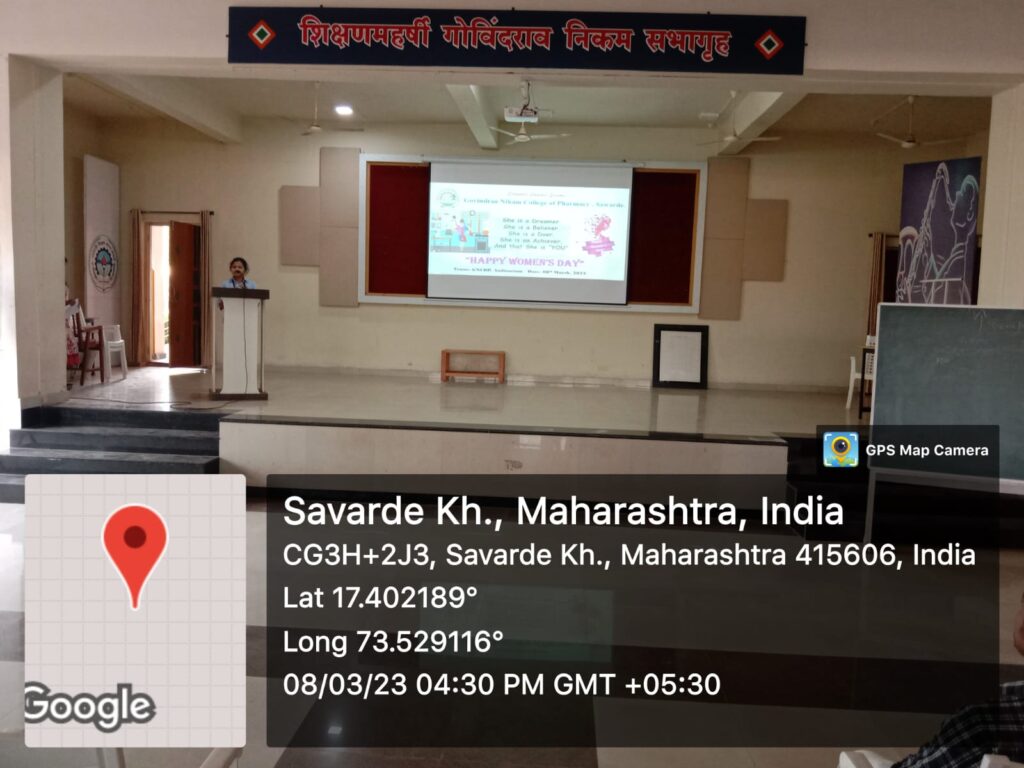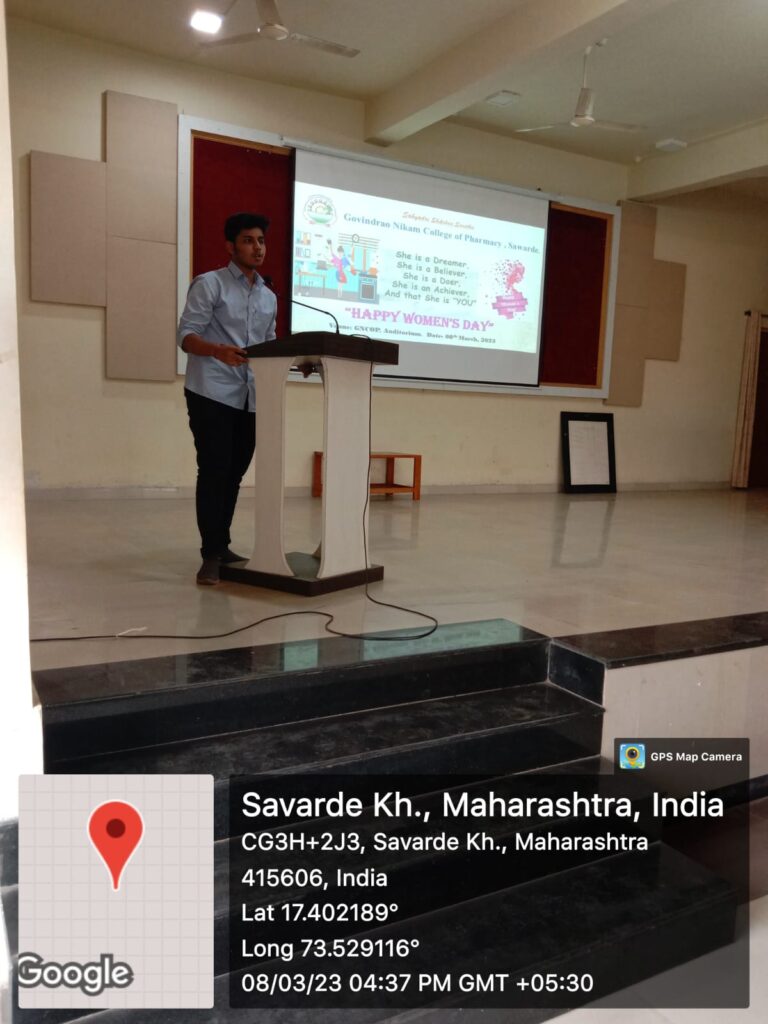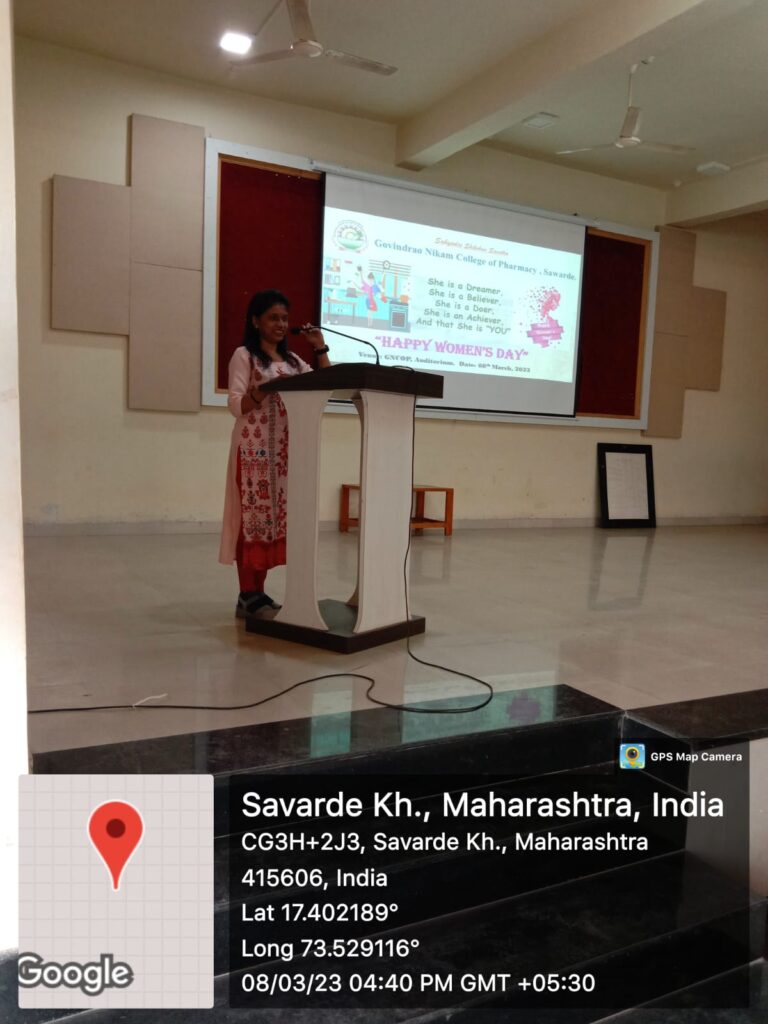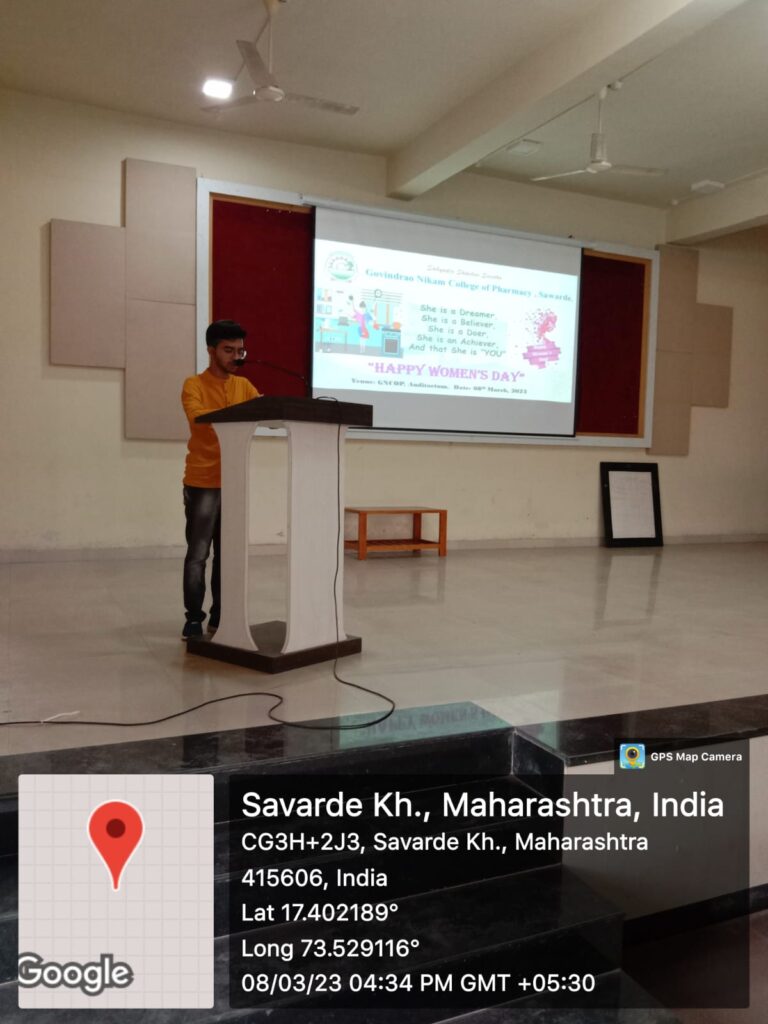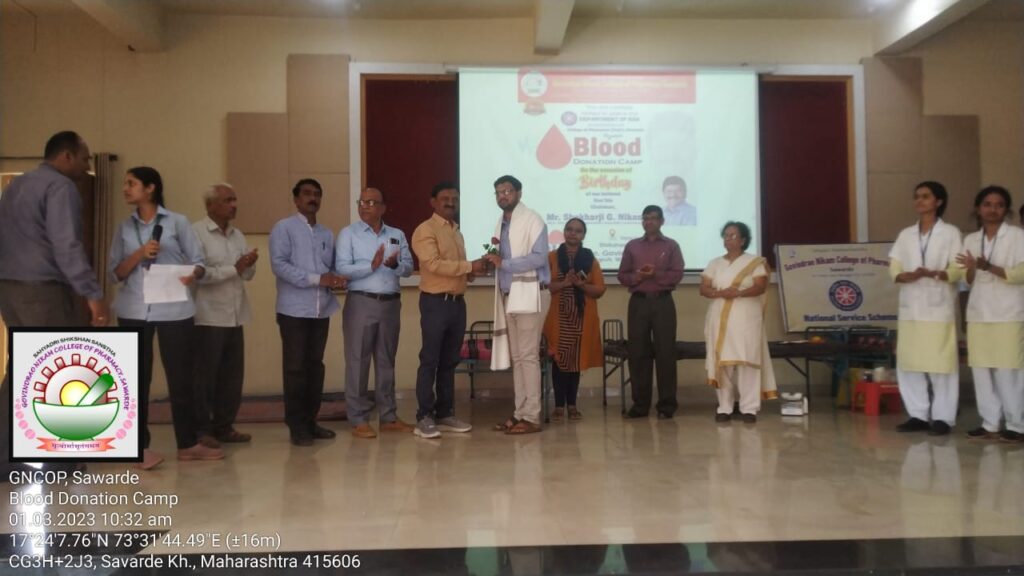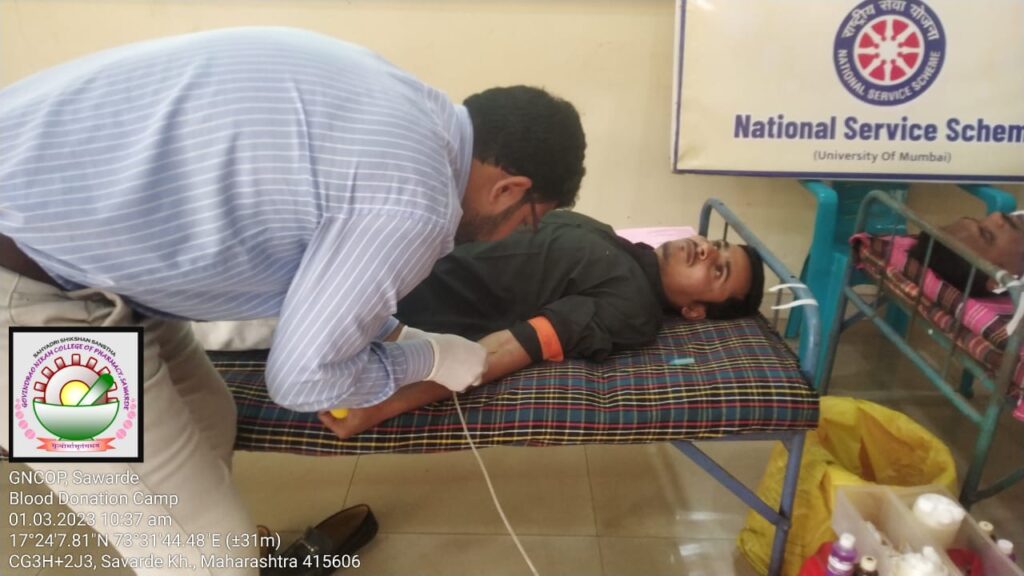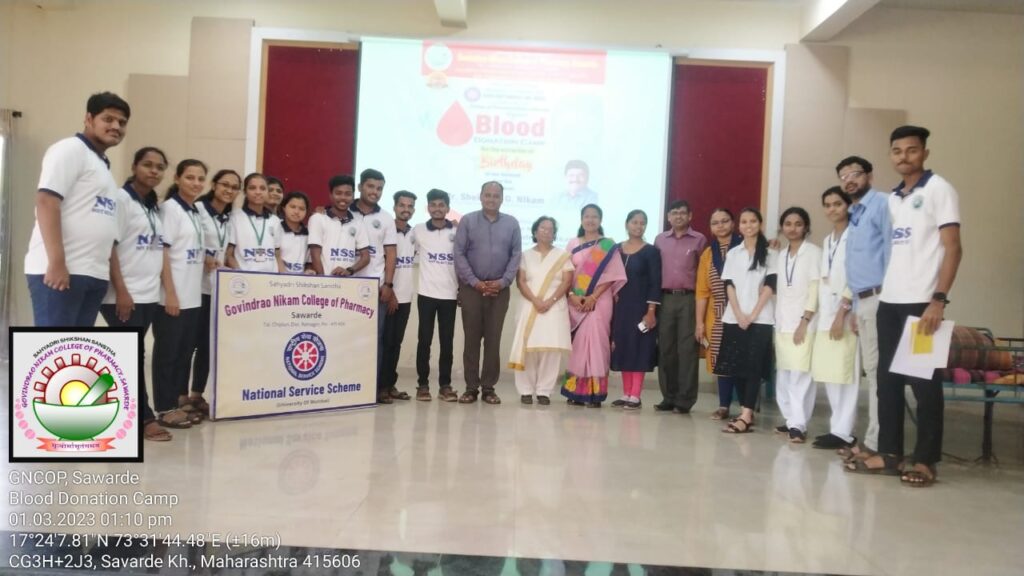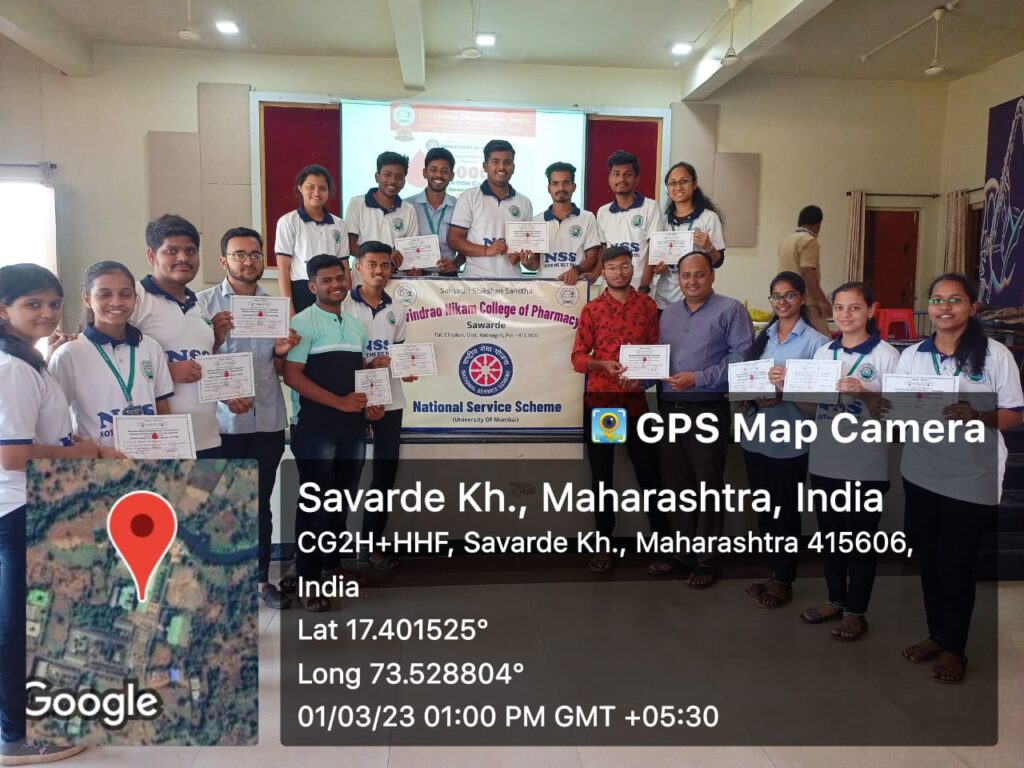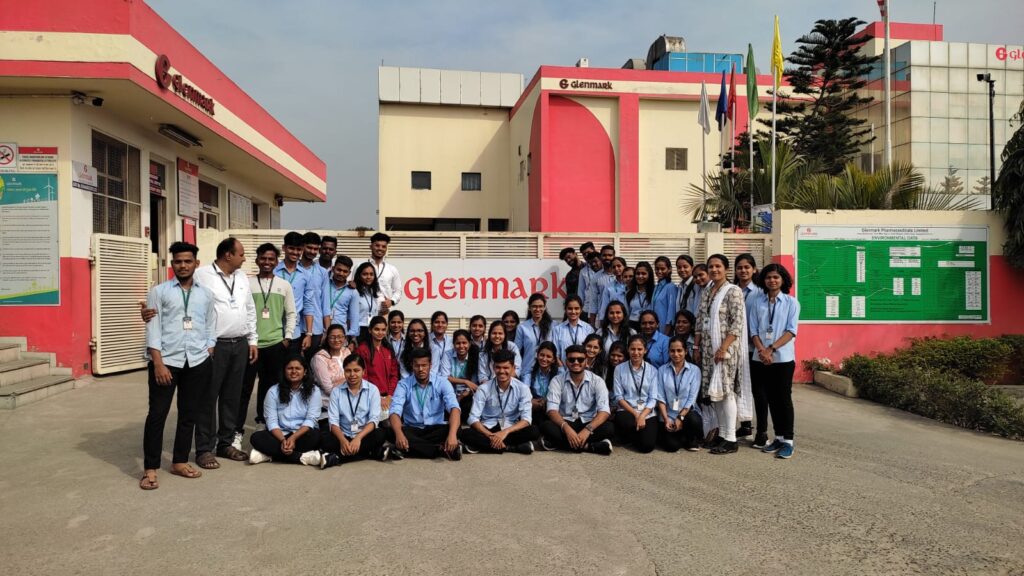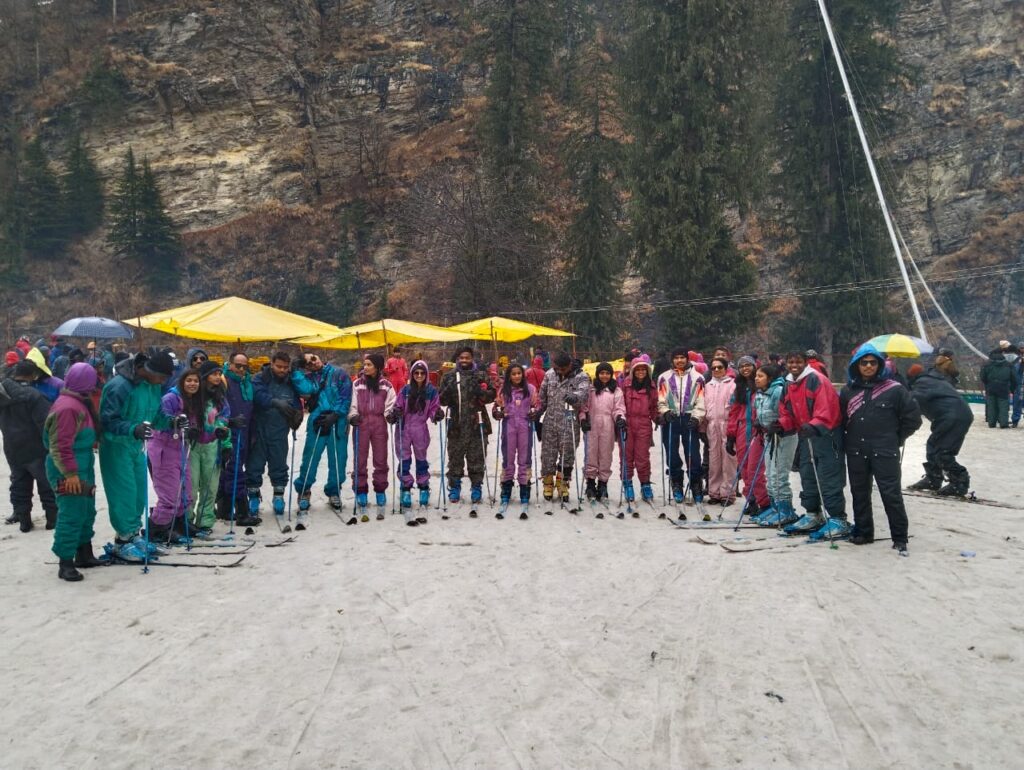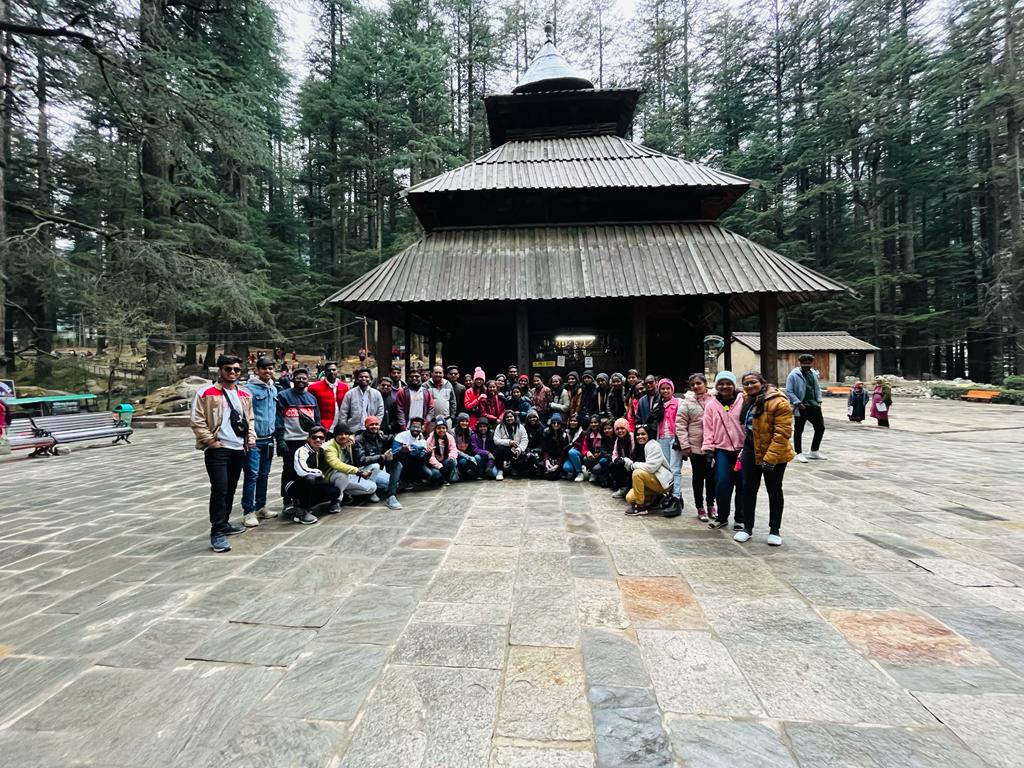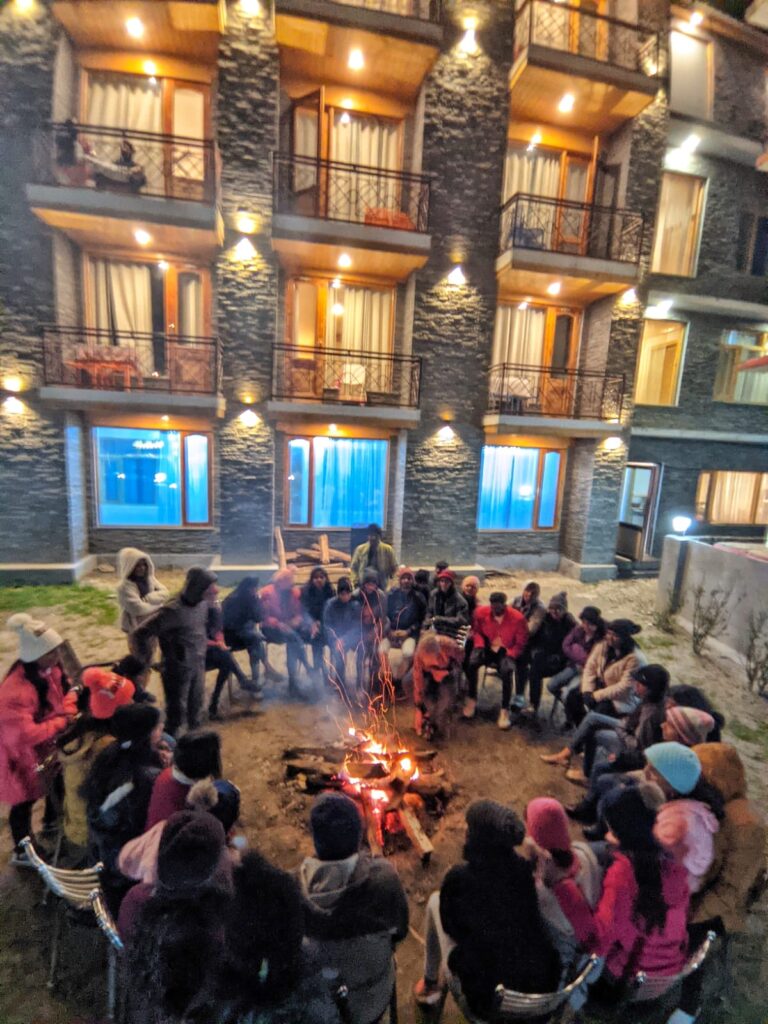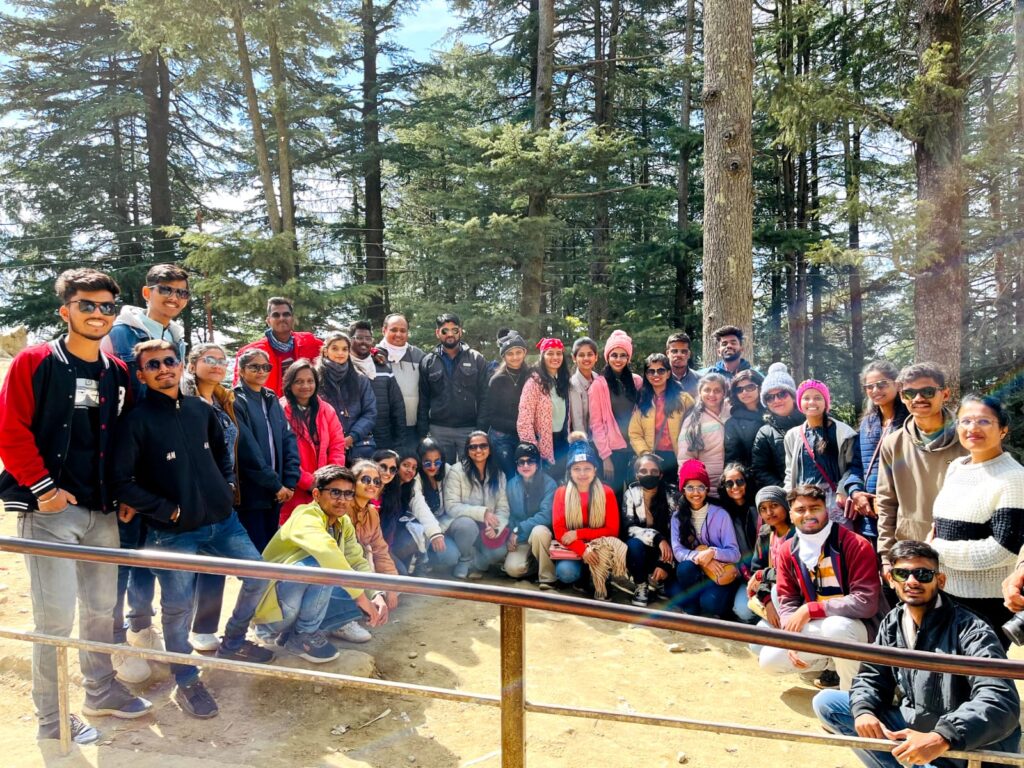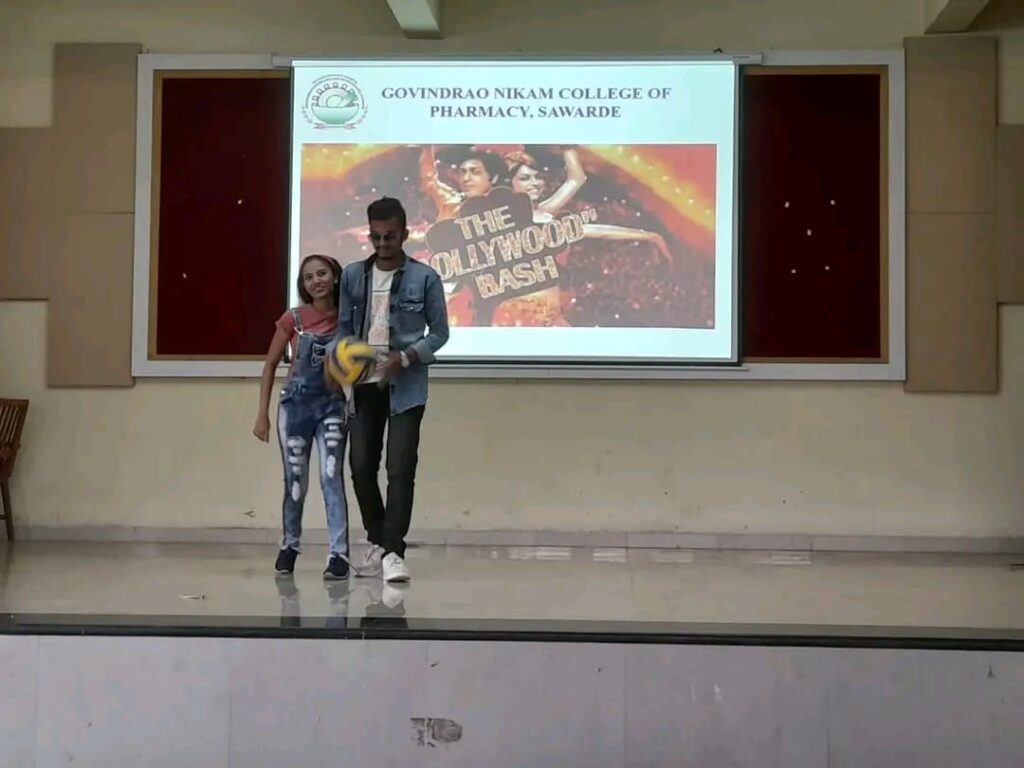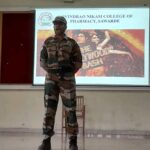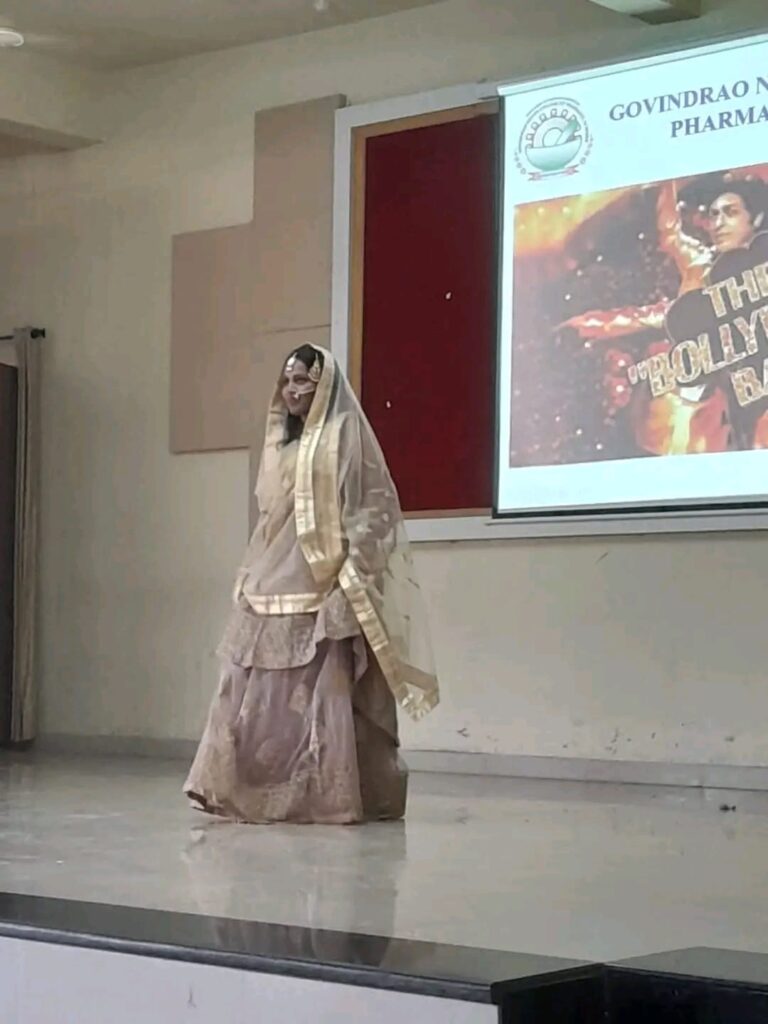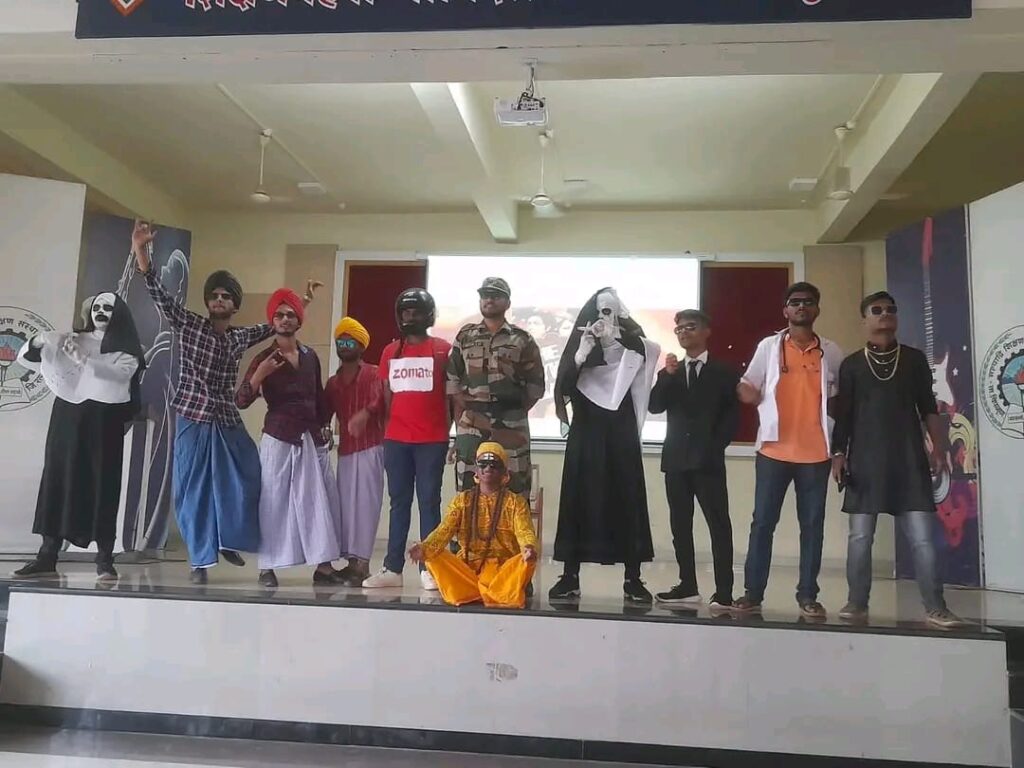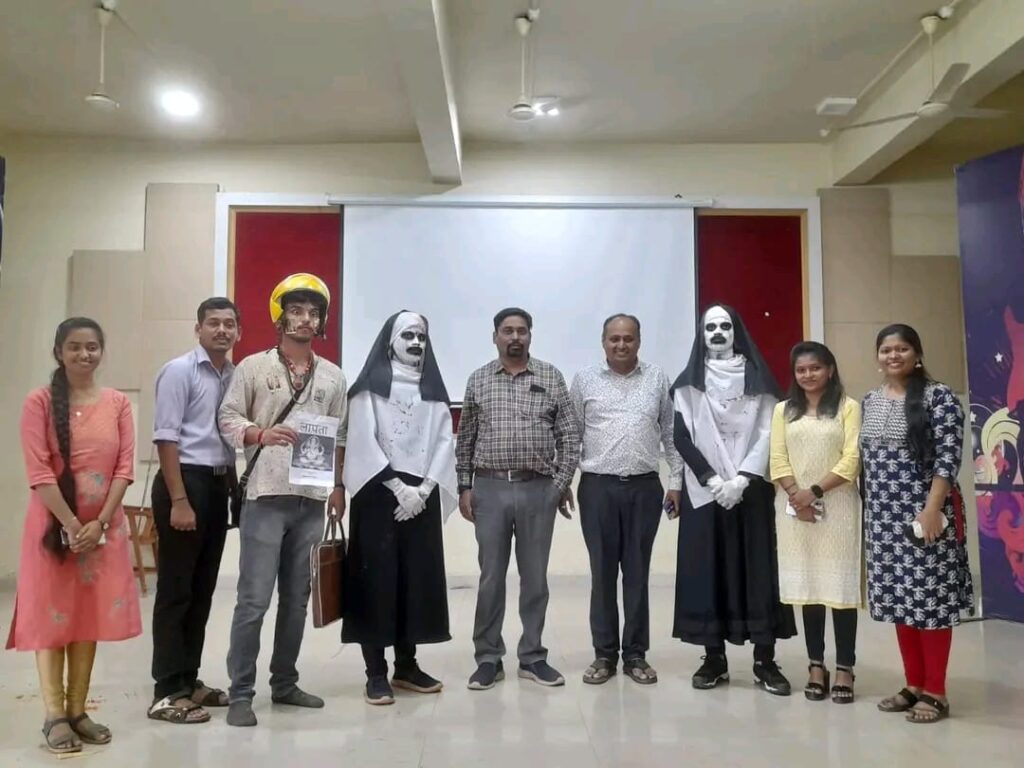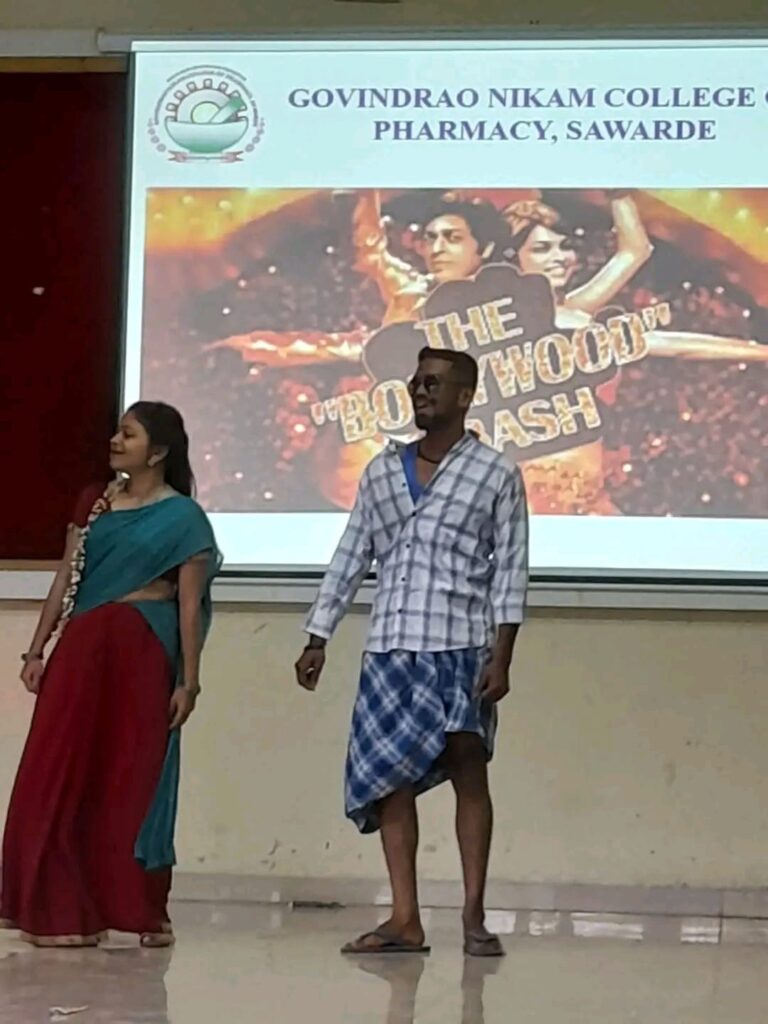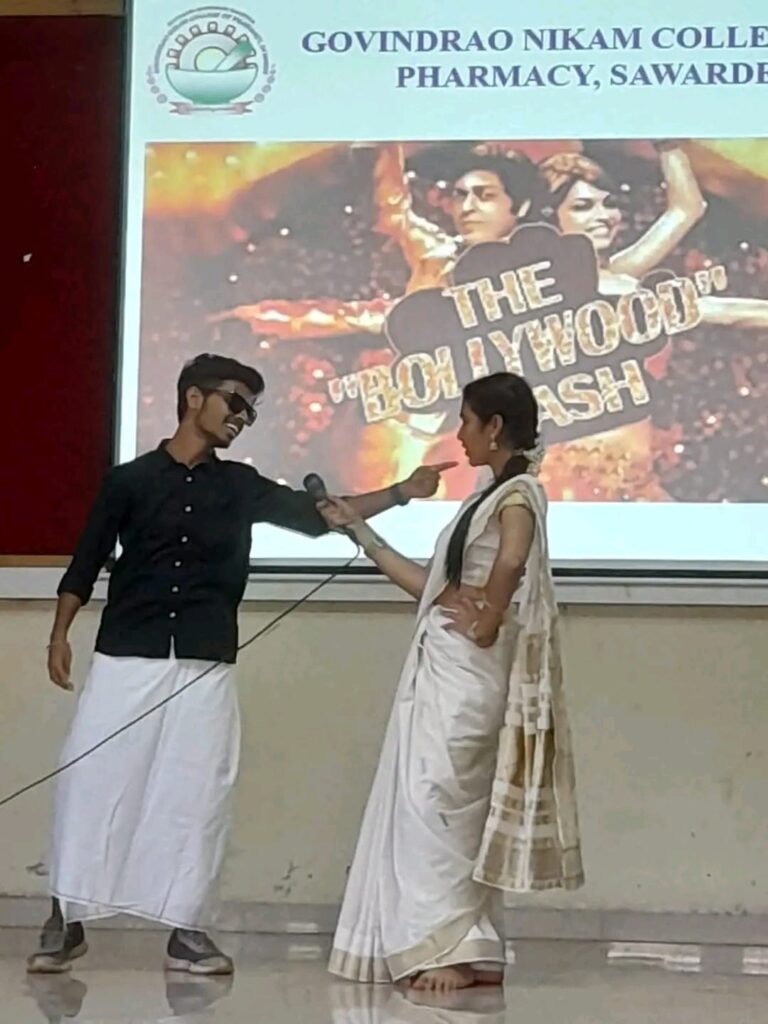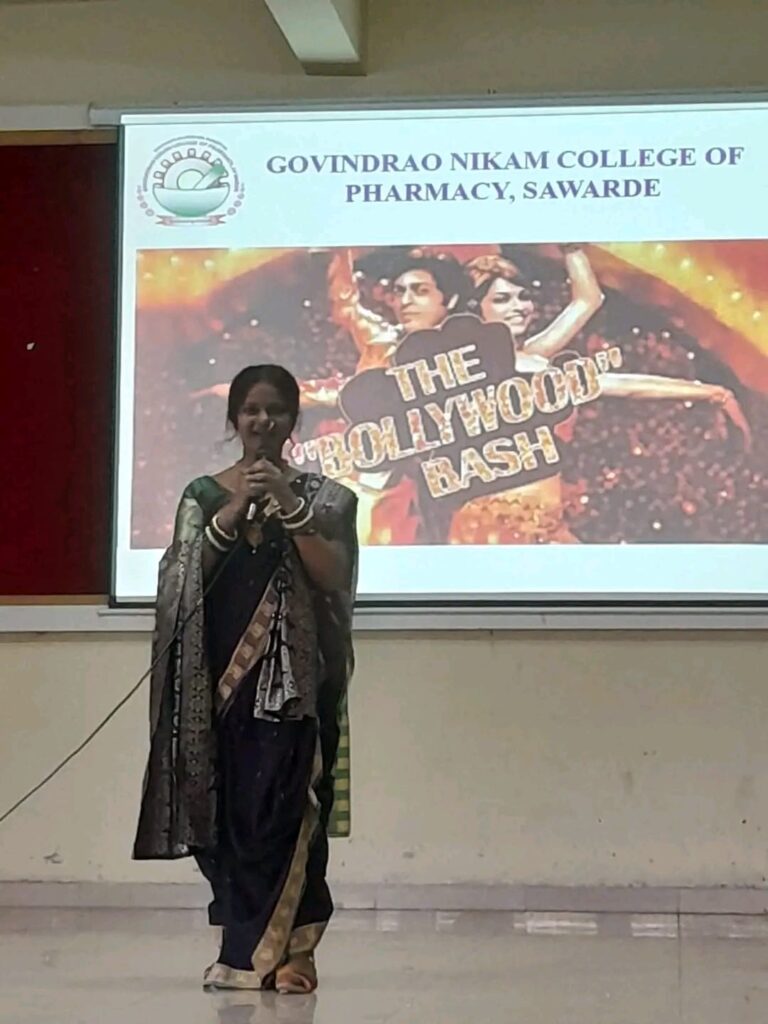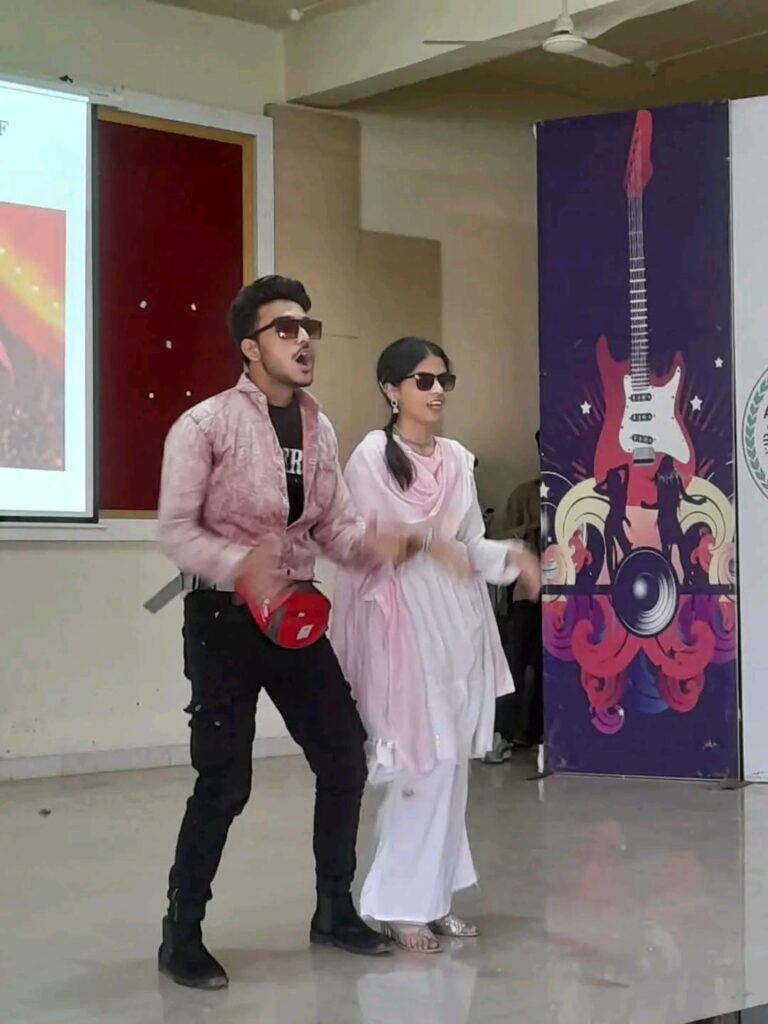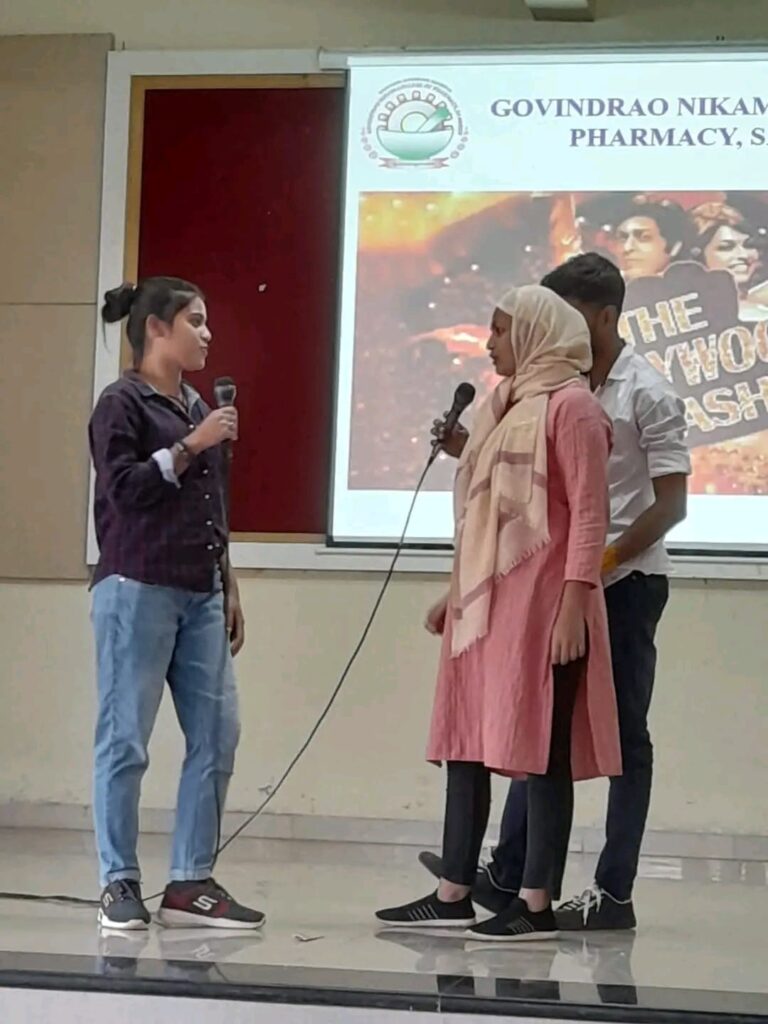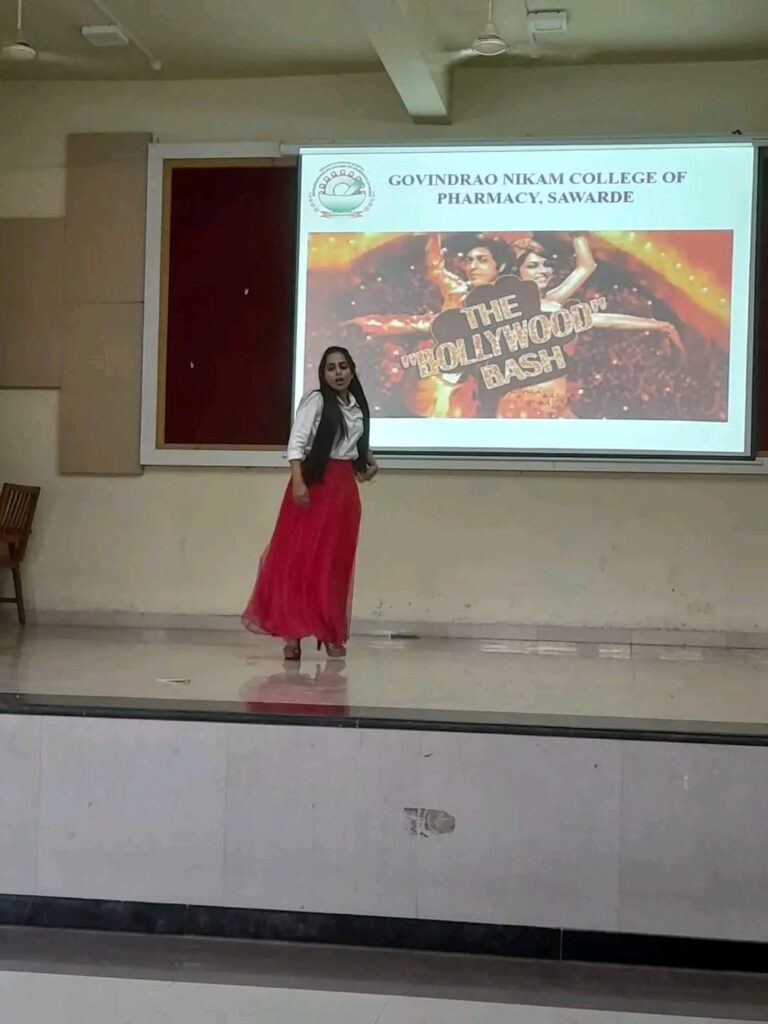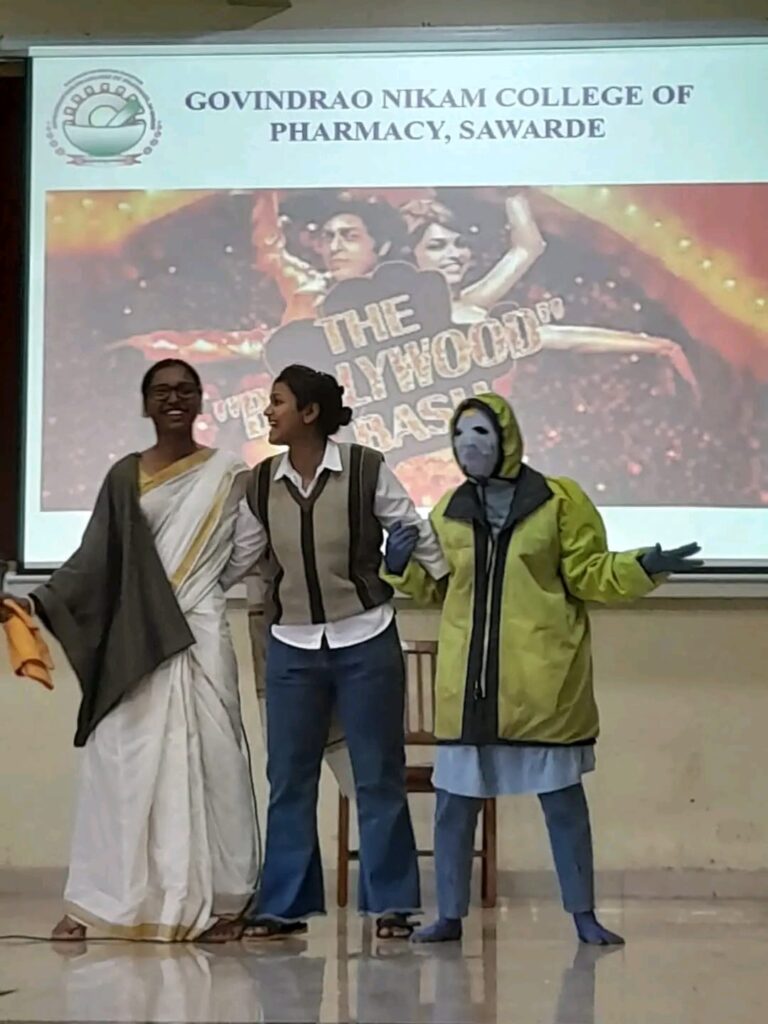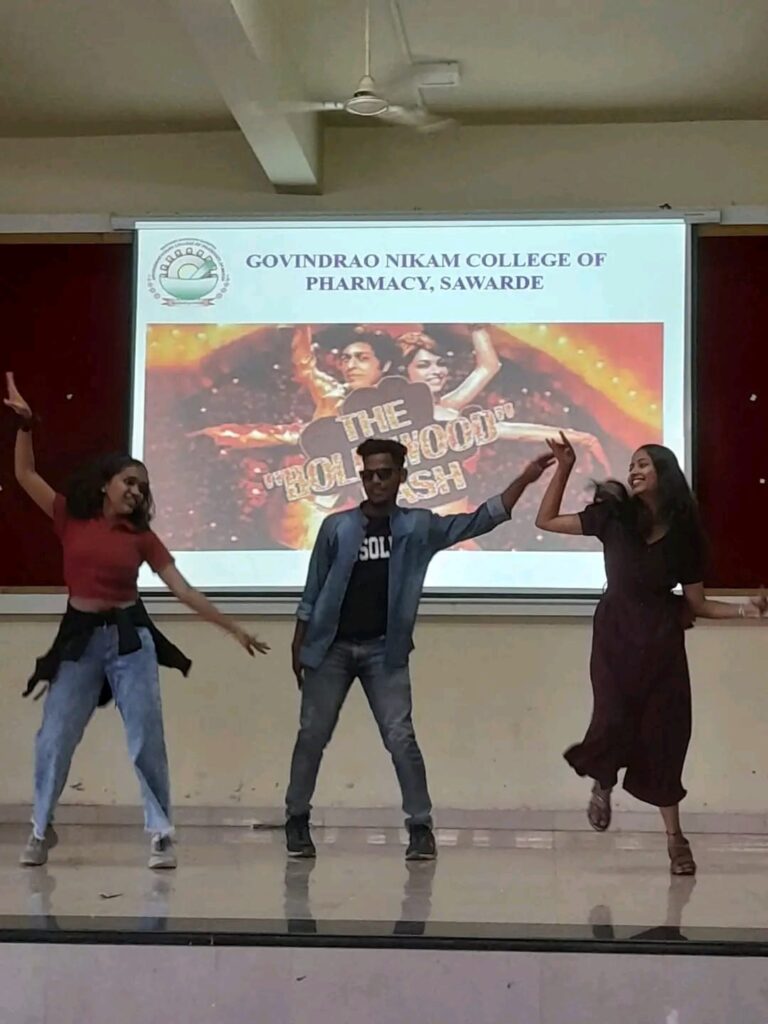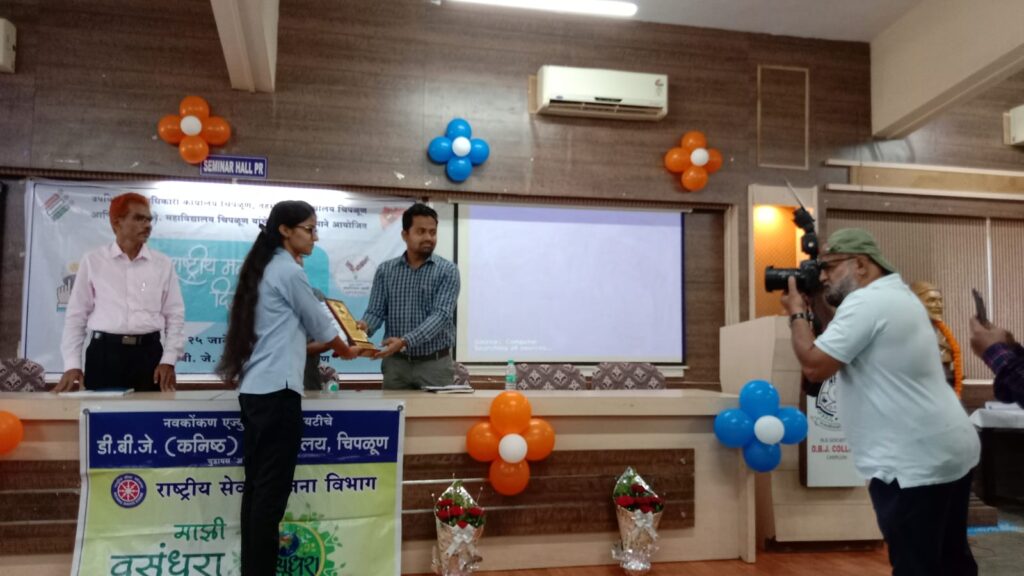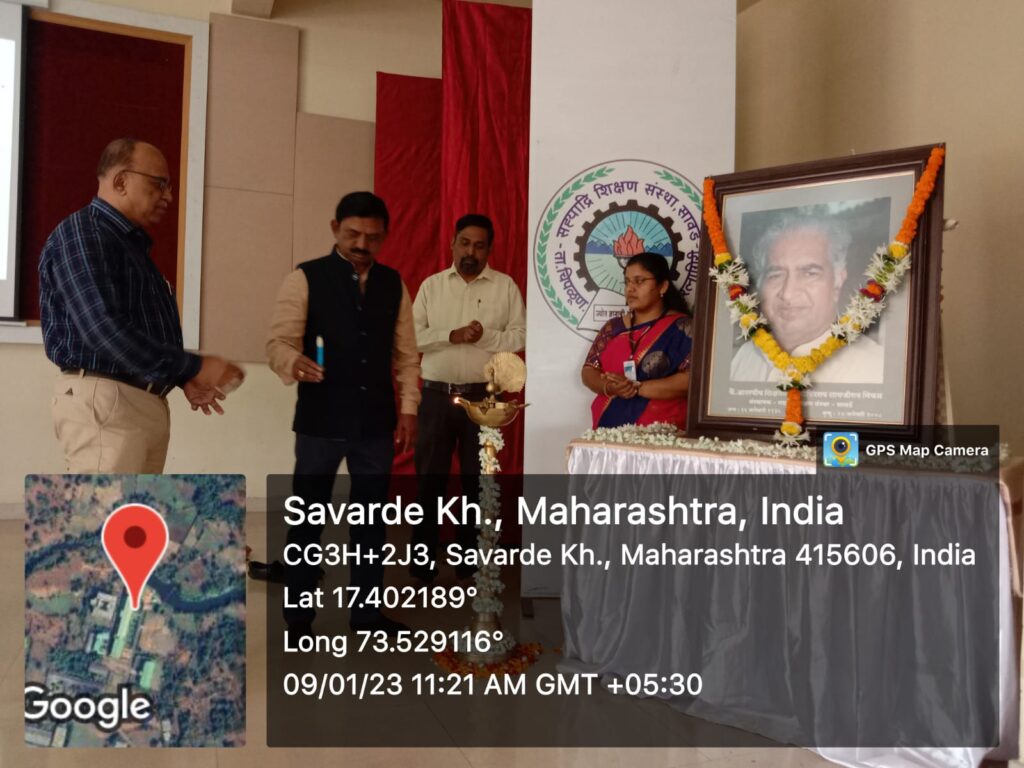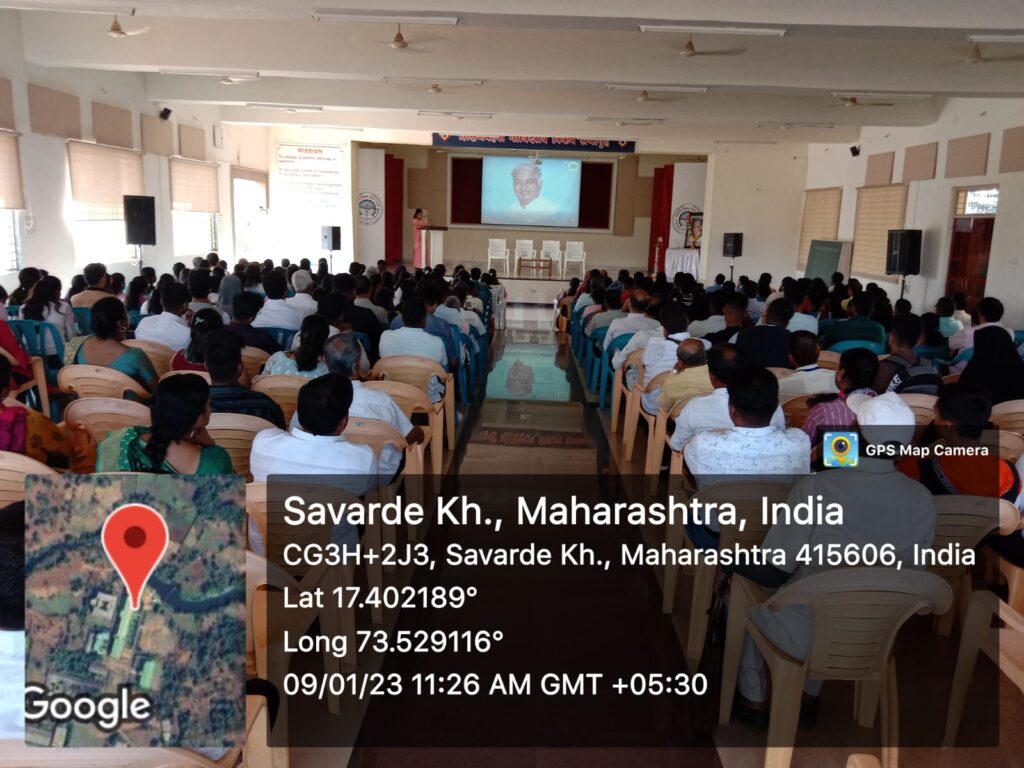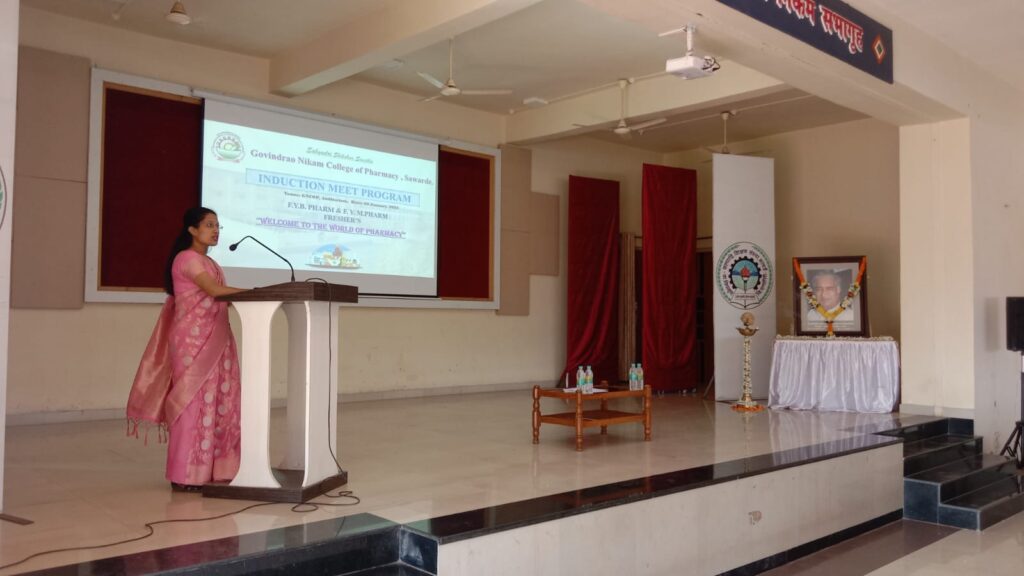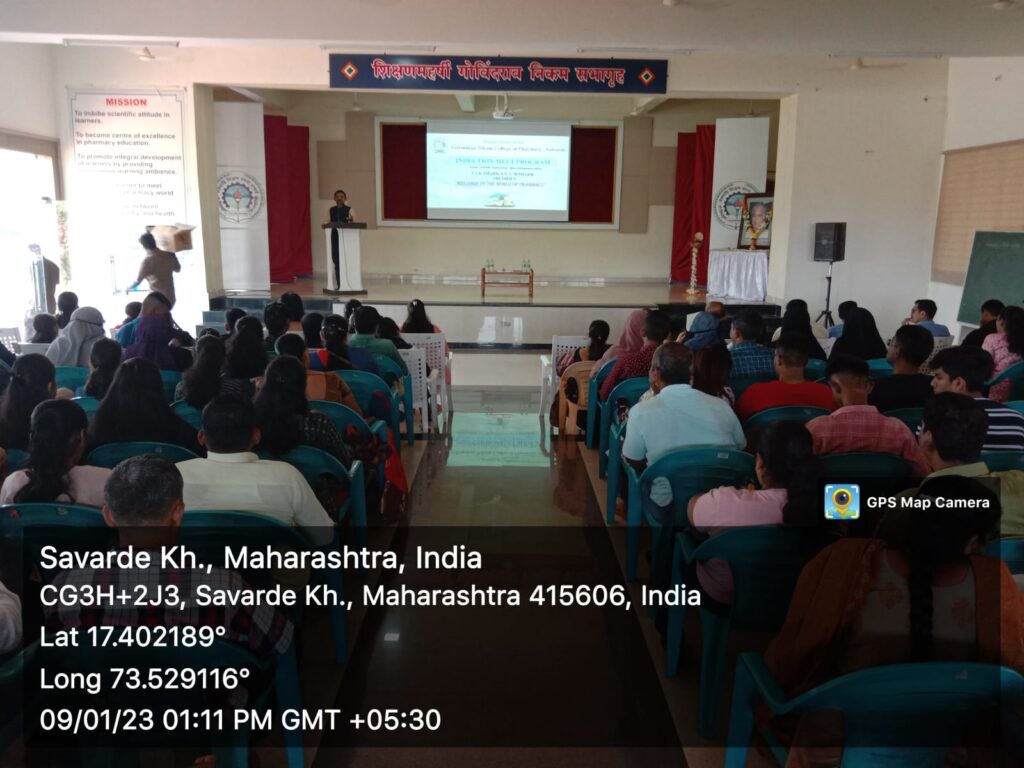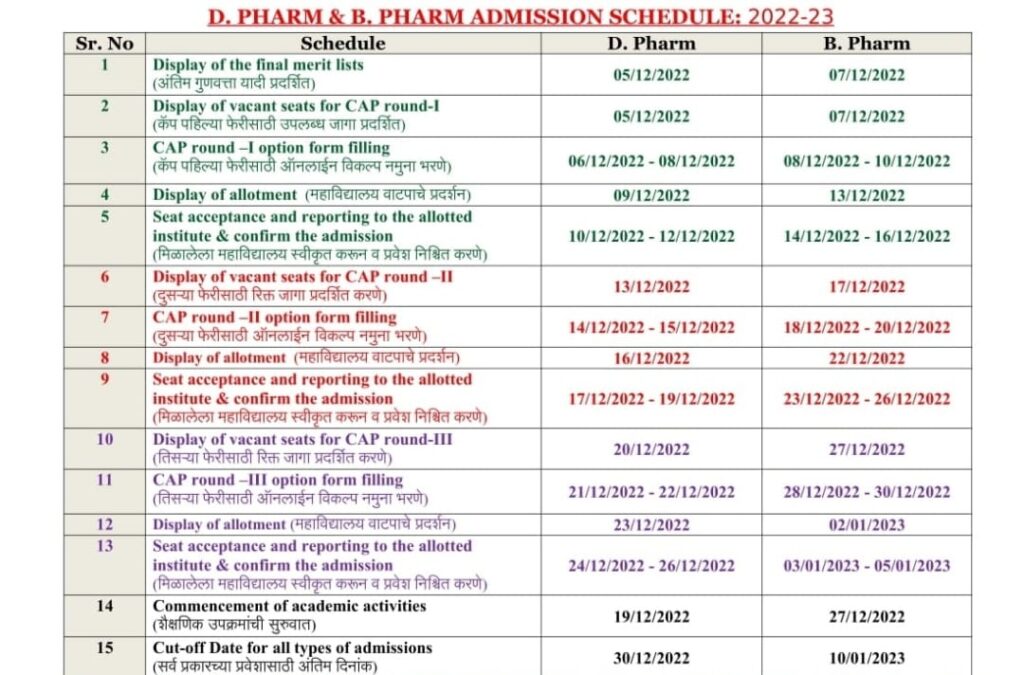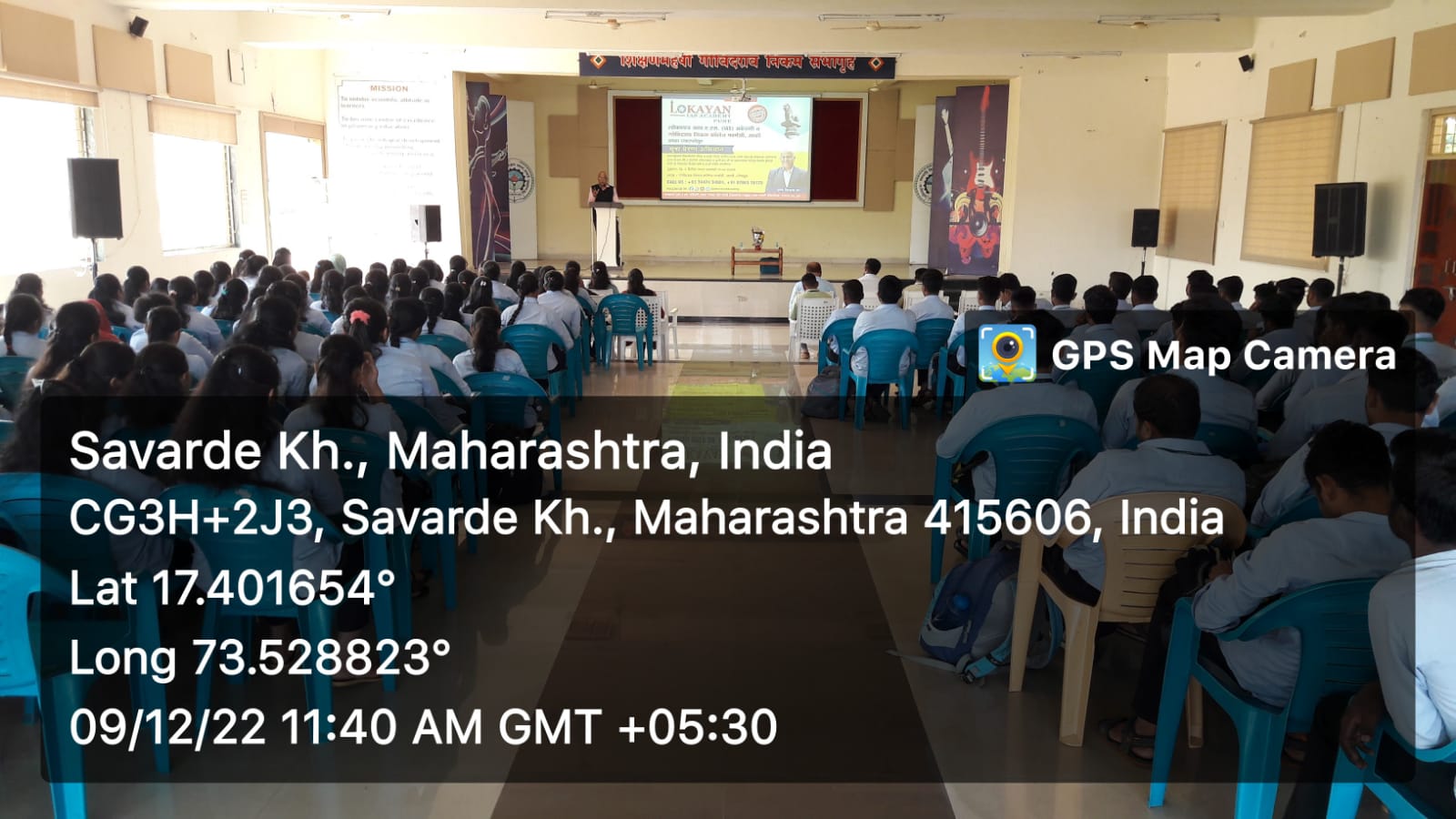Waste Management
Our Institution has a deep concern to protect the environment, health and well-being through implementation of effective waste management practices such as segregation, recycling, and composting. Awakening to control ‘throw-away’ lifestyles and grow consciousness of generating less waste among students, staff and faculty members has also been adopted. Our house keeping staff, gardeners and sweepers help in segregation of waste. Awareness programs are also conducted for preventing waste generation and its management.
E-Waste Management
- Electronic gadgets are repaired for minor defects by our lab technicians to ensure its optimum utilization.
- The electronic waste components such as computer system components, CPU and ICs are repaired for minor defects and if not repaired are handed to the vehicle collecting E-waste from Chiplun Gram Parishad.
E-Waste Management
- Electronic gadgets are repaired for minor defects by our lab technicians to ensure its optimum utilization.
- The electronic waste components such as computer system components, CPU and ICs are repaired for minor defects and if not repaired are handed to the vehicle collecting E-waste from Chiplun Gram Parishad.
Solid Waste Management
- Solid Waste like plastic, metals, glass, cardboard, newspaper and stationery are systematically collected, segregated.
- Dustbins have been installed throughout campus for waste segregation.
- College adopts an almost paperless concept by digitization of office procedures through electronic means via WhatsApp as group, email and Google classroom; LMS thus, reducing paper-based waste and reducing carbon dioxide emissions.
- Use of paper printed on one side is encouraged during question paper printing, minutes meeting, memos and notes in office practices as environmentally preferred alternatives to waste management to reduce pollution.
Solid Waste Management
- Solid Waste like plastic, metals, glass, cardboard, newspaper and stationery are systematically collected, segregated.
- Dustbins have been installed throughout campus for waste segregation.
- College adopts an almost paperless concept by digitization of office procedures through electronic means via WhatsApp as group, email and Google classroom; LMS thus, reducing paper-based waste and reducing carbon dioxide emissions.
- Use of paper printed on one side is encouraged during question paper printing, minutes meeting, memos and notes in office practices as environmentally preferred alternatives to waste management to reduce pollution.
- All solid waste, kitchen waste from mess and cafeteria, horticultural waste such as dried leaves, twigs, and plant clippings is collected from all around the campus are and used for vermicomposting where organic waste is shredded into pieces by using a cutter and dumped into a tank where pre-composting process is carried out by adding microbe rich material such as soil, sludge, cow dung, press mud etc., later allowed for vermicomposting at adequate moisture and temperature and pH.
- Vermi-compost so produced is enriched with water soluble nutrients and is used for gardening.
Liquid Waste Management
- Liquid waste released from college including labs is allowed to enter into a pit.
- It is then covered with sand and large stones where it filters to a little extent and then passes through another pit located besides.
- This pit is also covered with layers of stones, sand, charcoal and bricks where water passes through it and drains to another pit where water is treated with NaOH and alum to neutralize.
- The water thus treated is used for underground refilling and a part of gardening.
Liquid Waste Management
- Liquid waste released from college including labs is allowed to enter into a pit.
- It is then covered with sand and large stones where it filters to a little extent and then passes through another pit located besides.
- This pit is also covered with layers of stones, sand, charcoal and bricks where water passes through it and drains to another pit where water is treated with NaOH and alum to neutralize.
- The water thus treated is used for underground refilling and a part of gardening.
Waste Recycle System
- Paper waste is sold out for its recycling in the paper industry in Chiplun.
- Vermicomposting is used to recycle solid waste.
- Liquid Waste after proper treatment used in gardening.
Hazardous Chemicals and Radioactive Waste
- Being a health care institute, there are no hazardous chemicals used and radioactive waste generated in our college.
Waste Management
Our Institution has a deep concern to protect the environment, health and well-being through implementation of effective waste management practices such as segregation, recycling, and composting. Awakening to control ‘throw-away’ lifestyles and grow consciousness of generating less waste among students, staff and faculty members has also been adopted. Our house keeping staff, gardeners and sweepers help in segregation of waste. Awareness programmes are also conducted for preventing waste generation and its management.
Solid Waste Management
- Solid Waste like plastic, metals, glass, cardboard, newspaper and stationery are systematically collected, segregated.
- Dustbins have been installed throughout campus for waste segregation.
- College adopts an almost paperless concept by digitization of office procedures through electronic means via whatsApp as group, email and Google classroom; LMS thus, reducing paper-based waste and reducing carbon dioxide emissions.
- Use of paper printed on one side is encouraged during question paper printing, minutes meeting, memos and notes in office practices as environmentally preferred alternatives to waste management to reduce pollution.
- Students and staff are encouraged to use waste paper and newspaper during various extracurricular activities
- All solid waste, kitchen waste from mess and cafeteria, horticultural waste such as dried leaves, twigs, and plant clippings is collected from all around the campus are and used for vermicomposting where organic waste is shredded into pieces by using a cutter and dumped into a tank where pre-composting process is carried out by adding microbe rich material such as soil, sludge, cow dung, press mud etc., later allowed for vermicomposting at adequate moisture and temperature and pH.
- Vermi-compost so produced is enriched with water soluble nutrients and is used for gardening.
Liquid Waste Management
- Liquid waste released from college including labs is allowed to enter into a pit.
- It is then covered with sand and large stones where it filters to a little extent and then passes through another pit located besides.
- This pit is also covered with layers of stones, sand, charcoal and bricks where water passes through it and drains to another pit where water is treated with NaOH and alum to neutralize.
- The water thus treated is used for underground refilling and a part of gardening.
E-Waste Management
- Electronic gadgets are repaired for minor defects by our lab technicians to ensure its optimum utilization.
- The electronic waste components such as computer system components, CPU and ICs are repaired for minor defects and if not repaired are handed to the vehicle collecting E-waste from Chiplun Gram Parishad.
Waste Recycle System
- Paper waste is sold out for its recycling in the paper industry in Chiplun.
- Vermicomposting is used to recycle solid waste.
- Liquid Waste after proper treatment used in gardening.
Hazardous Chemicals and Radioactive Waste
- Being a health care institute, there are no hazardous chemicals used and radioactive waste generated in our college.
